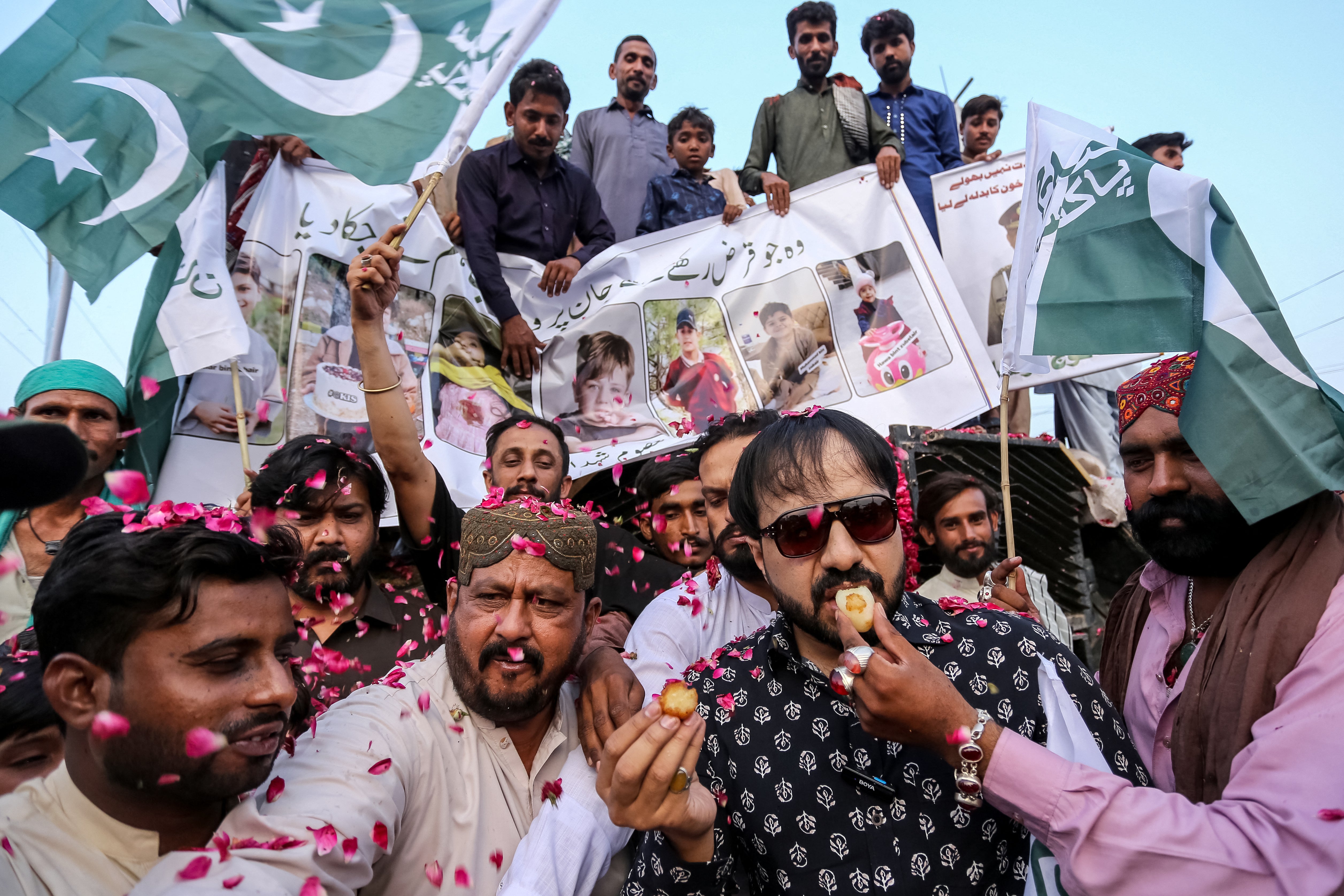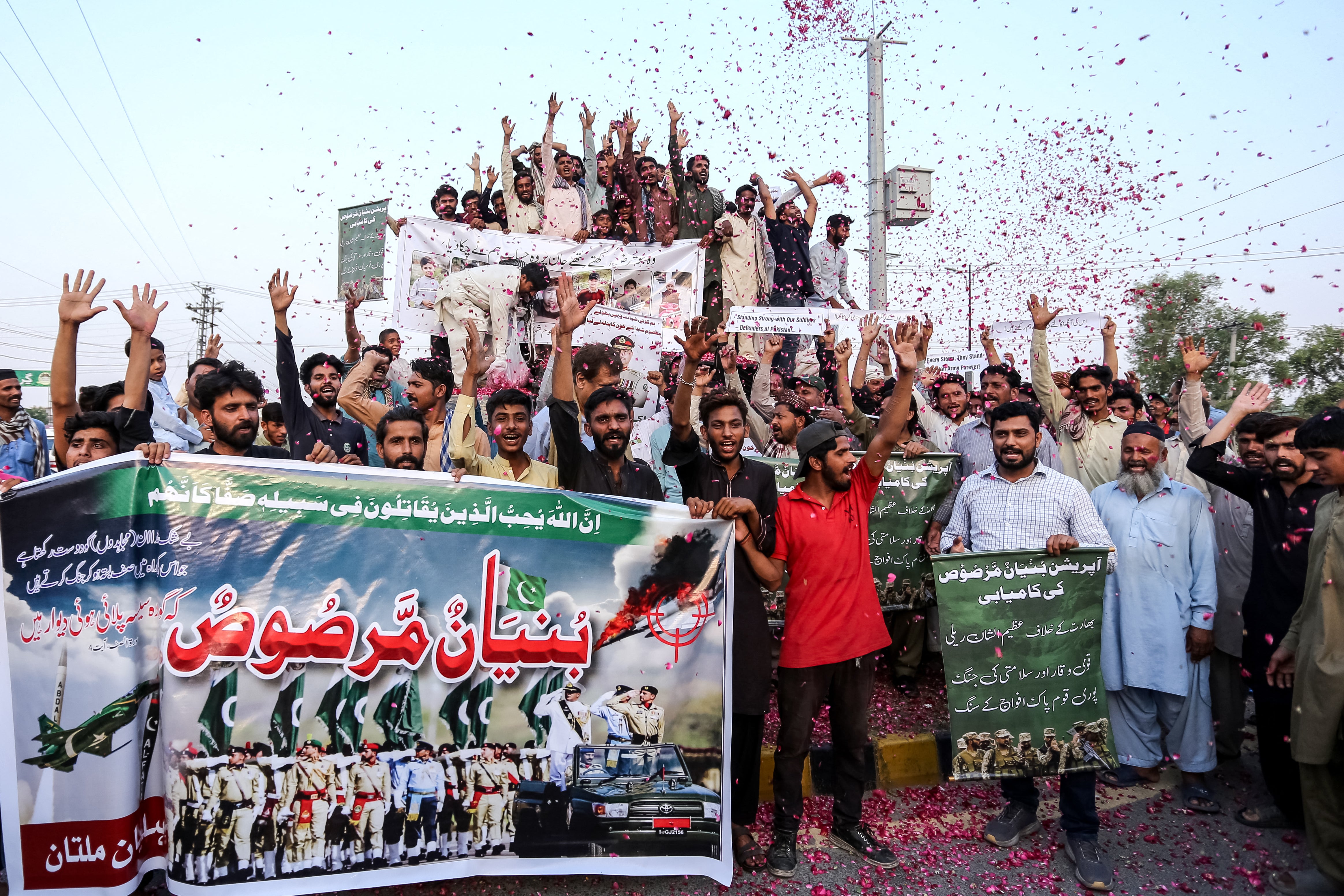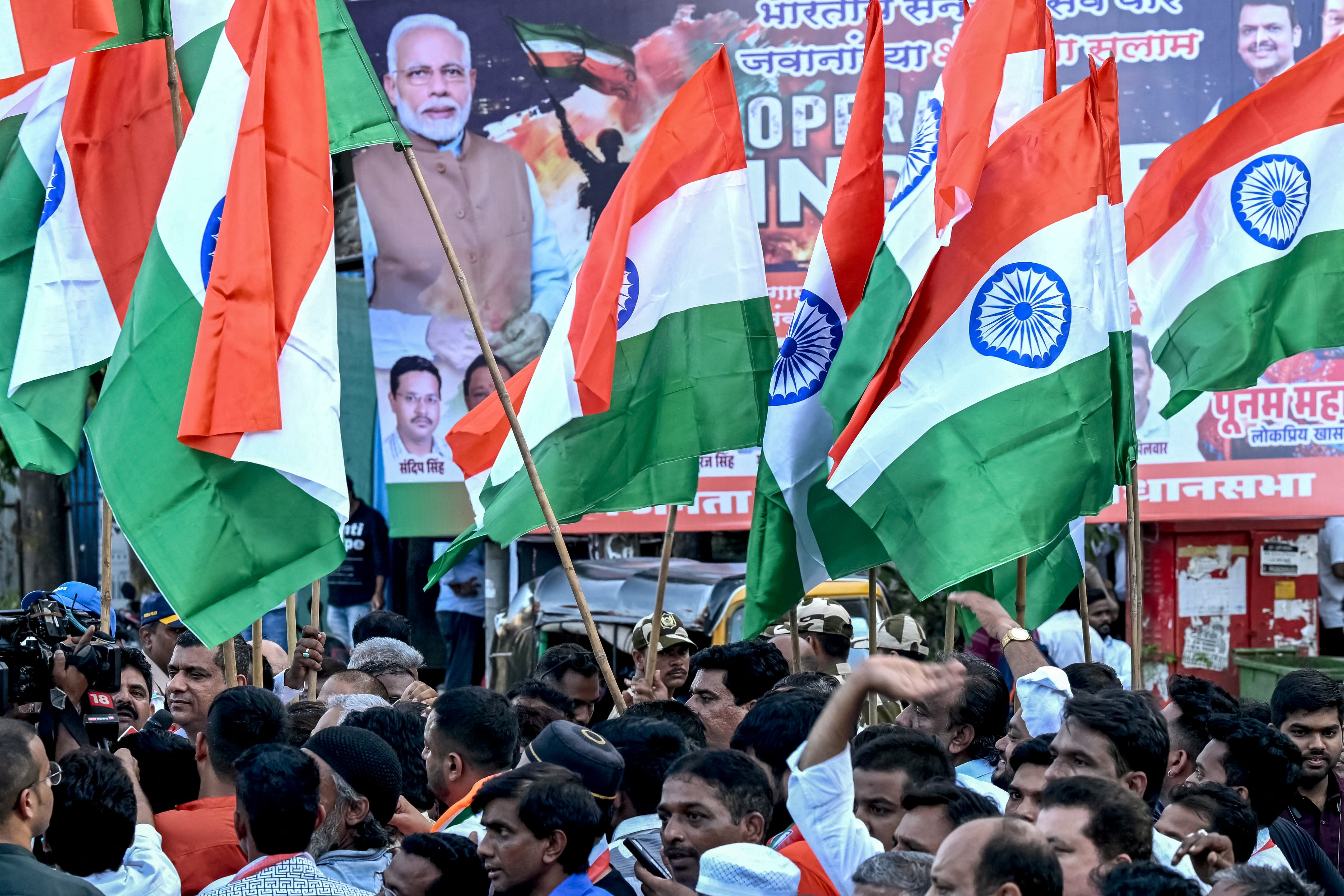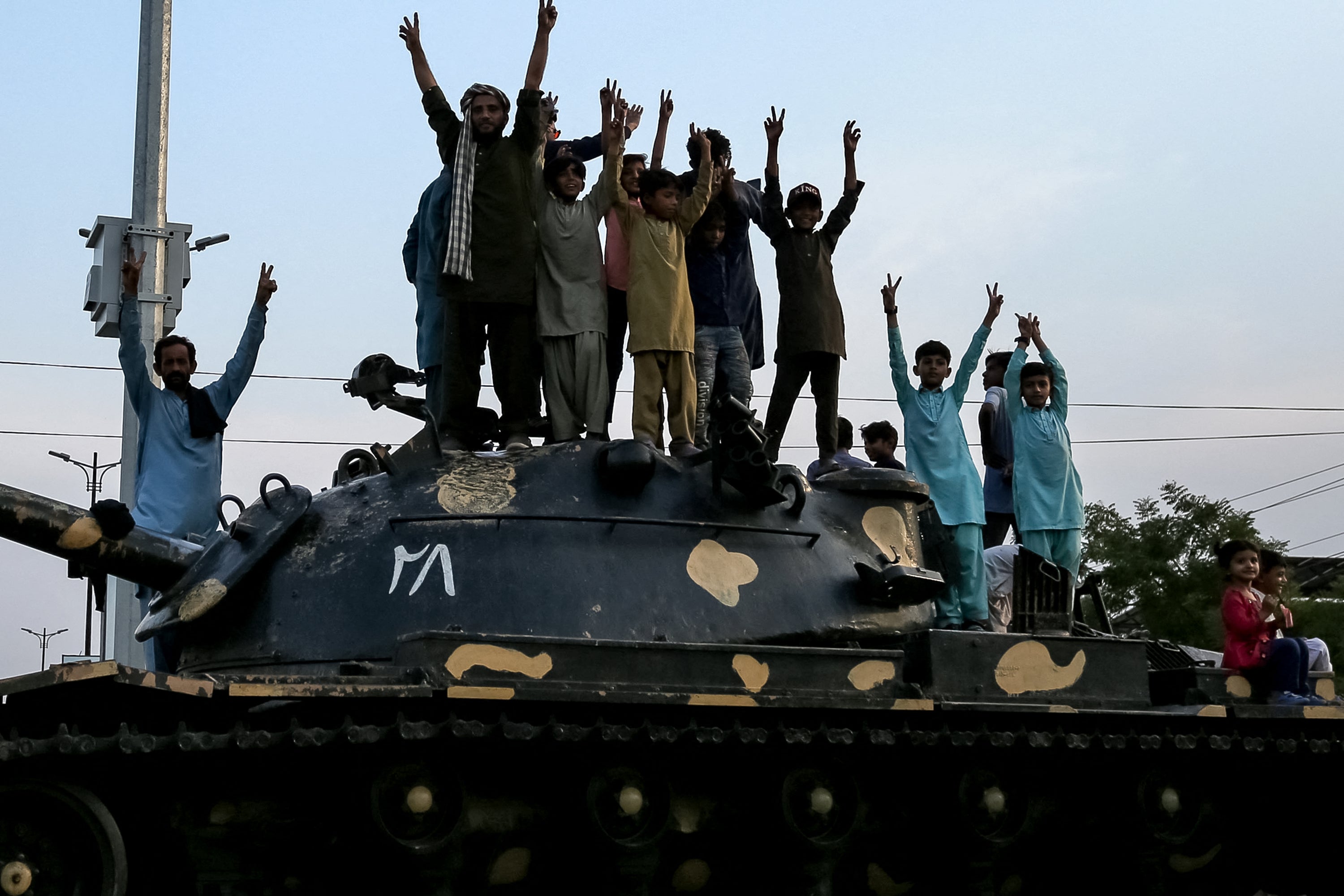The ceasefire between India and Pakistan appears to be holding more than 24 hours after explosions rocked Kashmir just hours after the truce was announced.
The nuclear-armed countries accused each other of breaking the deal on Saturday evening after blasts were heard over the cities of Jammu and Srinagar, India-administered Kashmir, and the western state of Gujarat.
US president Donald Trump announced the ceasefire at around 5pm India time, with explosions and projectiles seen over Kashmir at around 7.45pm.
Srinagar residents felt “like the city was being bombed”, The Independent producer Mohammad Dawood reported from the ground.
Indian foreign secretary Vikram Misri accused Pakistan of breaching the ceasefire after the blasts. Pakistan rejected the claim and accused India of firing first.
But almost a day later, no more alleged violations have been reported. Mr Trump praised the “powerful leadership of India and Pakistan” for “stopping the aggression”.
"Millions of good and innocent people could have died!” he wrote on his social media platform Truth Social. “Your legacy is greatly enhanced by your brave actions.”
Key Points
- India and Pakistan accuse each other of violating ceasefire hours after reaching deal
- Trump hails India-Pakistan ceasefire and vows to work on Kashmir solution
- How did the US broker a truce between India and Pakistan
- US Vice President JD Vance called Modi to encourage ceasefire talks - report
- Explosions heard over Srinagar in Kashmir hours after ceasefire
- India sidesteps US role in ceasefire as Pakistan showers praise on Washington
- Both India and Pakistan race to claim victory after ceasefire deal
Villagers evacuated from line of fire along India-Pakistan border fear going back
19:01 , Holly BancroftAfter spending days in temporary homes and with relatives, people from both sides of the Indian and Pakistani border are sceptical about this weekend's ceasefire and in no hurry to return to their villages, Aftab Ahmed, Saurabh Sharma and Tariq Maqbool report from Jammu, India.
Indian cites like Jammu and Amritsar, which were spooked by the sounds of explosions after the truce was agreed, remained quieter than normal on Sunday with many shops choosing to close and people preferring to stay indoors.
Indian and Pakistani authorities advised people who had left border areas not to return to frontline villages just yet.
After four days of fighting, India and Pakistan agreed to a ceasefire on Saturday under US pressure, but within hours explosions rang out in border towns and India accused Pakistan of violating the pact.
The arch rivals had been involved in the worst fighting in nearly three decades, firing missiles and drones at each other's military installations and killing almost 70 people.
"URGENT APPEAL: Do not return to frontline villages. Lives are at risk. Unexploded munitions remain after Pakistani shelling," said a police notice in Indian Kashmir.
Hundreds of people were shifted to temporary homes, while others left to stay with relatives far from the border as fighting intensified earlier in the week.
"I want to go back to my village in Bihar. Do not want to go back there (to the border) and die," said Asha Devi, a 22-year- old farm labourer in the Akhnoor region, one of the areas worst affected by shelling in recent days.
Kabal Singh, head of a village close to the border, said people were scared to return home after they heard the blasts following the ceasefire announcement.
On the Pakistan side of the border, some residents displaced from villages were advised to wait until Monday midday before returning.
"Many of them are waiting to see how the situation develops before making a decision about returning," said Akhtar Ayoub, a local administration official in Pakistan's Neelum Valley.

Analysis: Kashmir is crucial to both India and Pakistan
17:58 , Holly BancroftStephen Farrell at the international think tank Chatham House has given his analysis on why Kashmir is such a crucial region for India and Pakistan.
He said: “India and Pakistan have fought at least two wars and several bouts of hostilities over Kashmir. And the feeling, I think, in recent years is that India’s central government has consolidated its grip over the part of Kashmir that it holds. It’s got rid of autonomy provisions within its constitution, which made Pakistan nervous. Pakistan claims that the part of Kashmir that India holds, India claims the part of Kashmir that Pakistan holds.
“It is core to both countries identities...You can take your pick of the significances that Kashmir has for both countries: strategic, military, religious, spiritual, economic, anything that unbalances Kashmir can have extremely serious knock-on consequences.”
He added: “Let’s not forget that China is sitting there, which itself has taken a slice of Kashmir.”
Recap: Trump says he will increase trade with India and Pakistan and find solution to Kashmir dispute
17:29 , Holly BancroftDonald Trump pledged to “increase trade substantially” with India and Pakistan and find a solution to the long-running Kashmir dispute after the South Asian nuclear powers reached a ceasefire on Saturday afternoon.
In a post on his Truth Social platform, the US president also took credit for the ceasefire that was agreed with support from his administration.
India and Pakistan exchanged heavy fire for four straight days in their worst conflict in more than a quarter century, launching missiles and drones at each other’s military bases and leaving dozens of people dead.
Read the full story from Rhian Lubin and Namita Singh reporting from New York and Delhi:

Trump says he will work to resolve Kashmir dispute ‘after a thousand years’
Analysis: India and Pakistan don’t fight wars like other countries. Here’s why
16:52 , Holly BancroftIndia and Pakistan have fought three full-scale wars since they gained independence from British India in 1947. They’ve also had dozens of skirmishes and conflicts, including one atop a glacier dubbed the coldest and highest-altitude battlefield in the world.
The latest escalation follows a deadly gun attack on tourists that India blames Pakistan for — Islamabad denies any connection. But they don’t fight wars like other countries.
The dominant factor is their nuclear weapons arsenal, a distinct way of deterring major attacks and a guarantee that fighting doesn’t get out of hand, even when the situation is spiralling.
Here’s analysis of why Pakistan and India fight the way they do from Riazat Butt:

India and Pakistan don’t fight wars like other countries. Here’s why
In pictures: Indian villagers look on at damage from shelling
16:22 , Holly BancroftVillagers observe the damage done by Pakistani artillery shelling overnight in India’s Jammu region.



Trump says he will 'substantially increase trade' with India and Pakistan
15:56 , Holly BancroftUS President Donald Trump has vowed to help India and Pakistan find a solution on the disputed Kashmir region.
A truce that took effect on Saturday after four days of intense fighting between the nuclear-armed neighbours. In the worst fighting in nearly three decades, they fired missiles and drones at each other's military installations, killing almost 70 people.
Mr Trump praised the leaders of both countries for agreeing to halt the aggression and said he would "substantially" increase trade with them.
"I will work with you both to see if ... a solution can be arrived at concerning Kashmir," Mr Trump added in a post on his Truth Social platform.

Pakistan says 'three dozen countries' involved in diplomacy
15:23 , Holly BancroftAfter US president Donald Trump took to social media to announce a ceasefire between India and Pakistan, Pakistan’s foreign minister has said that “three dozen countries” were involved in the diplomacy, according to Reuters news agency.
Ishaq Dar reportedly told Geo news that Saudia Arabia and Turkey played an important role in facilitating the deal.
Tanvi Madan, a senior fellow at the Brookings Institution in Washington DC told the BBC that a call by US secretary of state Marco Rubio to Pakistani army chief Asim Munir on May 9 “might have been the crucial point”.
Ms Madan added: “One question is whether, if this call had come earlier - right after the initial Indian strikes, when Pakistan was already claiming some Indian losses and an off-ramp was available - it might have prevented further escalation.”
“There is still much we don’t know about the roles of various international actors, but it’s clear over the past three days that at least three countries were working to de-escalate - the US, of course, but also the UK and Saudi Arabia”.
Indian cricket league matches 'to resume soon'
15:06 , Holly BancroftThe Indian Premier League will resume "soon" but no decision has been taken yet as to exactly when, the vice-president of the Board of Control for Cricket in India has said.
Escalating hostilities between India and Pakistan led to their T20 tournaments being suspended on Friday, with the BCCI saying that applied to the IPL "with immediate effect for one week".
A ceasefire was subsequently announced, and on Sunday BCCI vice-president Rajeev Shukla was quoted by Asian News International as telling reporters regarding the IPL: "No decision has been taken yet.
"The tournament was suspended for a week and yesterday there was a ceasefire... the tournament will be restarted soon."
The Times has reported that with the aim being a resumption this coming Friday, IPL teams recalled their overseas players on Saturday, including English players already on their way home.
Analysis: Trump craves recognition as the peacemaker president. Will diplomatic wins spur him on?
14:58 , Holly BancroftA US-led ceasefire agreement between India and Pakistan, and a renewed push to force Russia to end attacks on Ukraine, add to Trump’s quest for recognition on the world stage as the peacemaker president, writes Oliver O’Connell.
“President Donald Trump, hailing a successful US-mediated ceasefire between India and Pakistan on Saturday, brought flashbacks to his inauguration day address and desire to be seen as a “peacemaker.”
Standing under the dome of the Capitol Building, the bombastic, newly sworn-in 47th President of the United States, previously its 45th commander-in-chief, delivered a dark and partisan address before the throng of lawmakers and dignitaries.
Amid declarations on immigration, taxes, governmental upheaval, being saved by god, and the dawn of a golden age for America, Trump also revisited some of his familiar grievances about how unfairly he has been treated.
There was a nod to one particular complaint, sandwiched between promises to build the strongest military the world has ever seen and a desire for an expansionist America, Trump said: “We will measure our success, not only by the battles we win, but also by the wars that we end, and perhaps most importantly, the wars we never get into.”
Read more here:

Peacemaker president? Trump’s long-running quest for international recognition
Indian military: Pakistan lost 35 to 40 military personnel
14:33 , Holly BancroftThe Indian military have said that Pakistan lost 35 to 40 military personnel in the latest fighting with India, Reuters news agency has reported.
They have also said that Pakistan proposed hostilities were ceased on Saturday, but that the Pakistan army violated ceasefire arrangements over a couple of hours that day.
Operation Sindoor shook Rawalpindi, says Rajnath Singh
14:20 , Namita SinghIndian defence minister Rajnath Singh on Sunday said India’s recent military action in response to the Pahalgam terror attack sent shockwaves through Pakistan, including its army headquarters in Rawalpindi.
Speaking via video link at the inauguration of a BrahMos missile production unit in Lucknow, part of the Uttar Pradesh Defence Industrial Corridor, Mr Singh praised the Indian Army’s precision in executing Operation Sindoor.
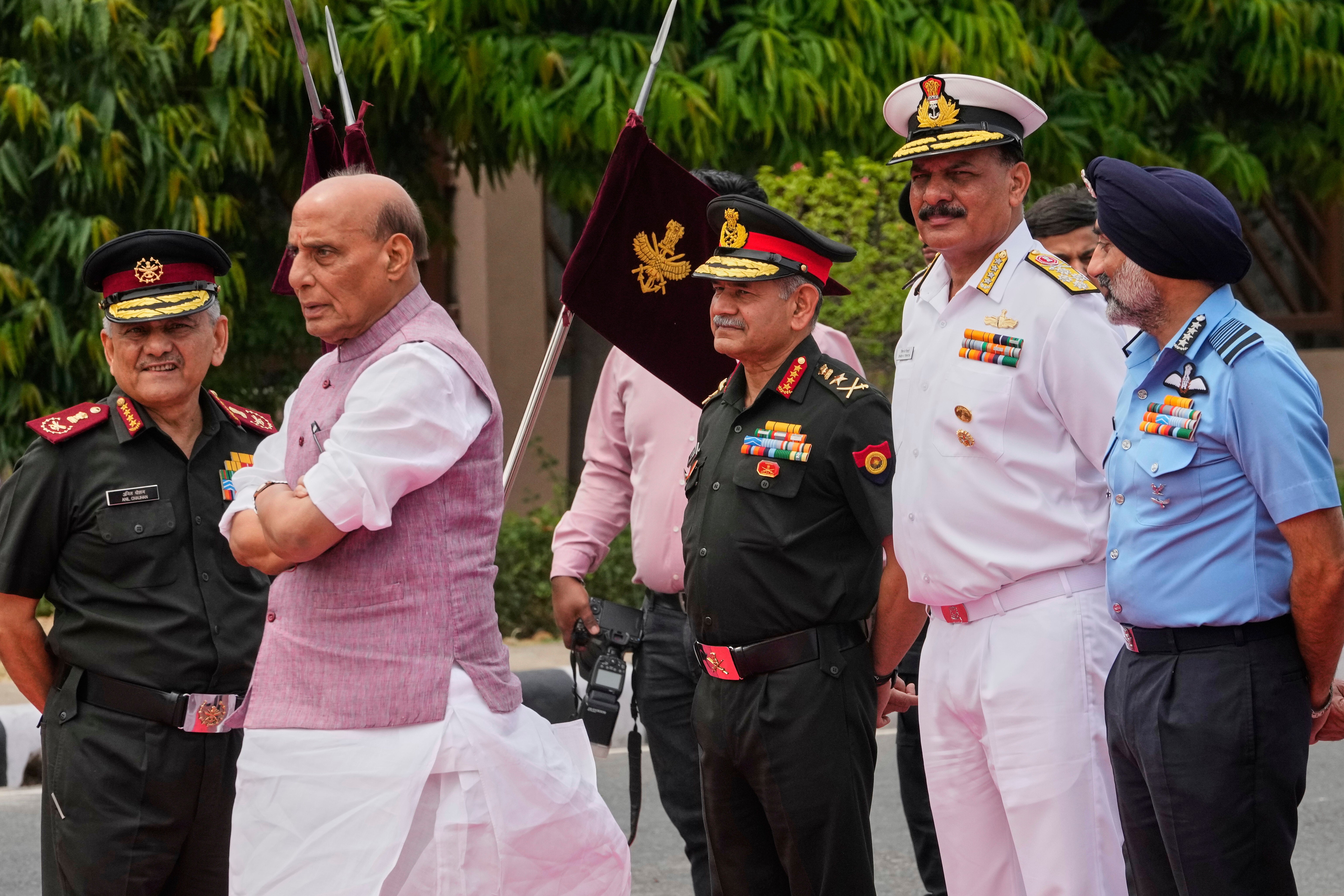
“The Indian Army has displayed valour and courage as well as restraint and has given a befitting reply by attacking many military bases of Pakistan,” he said.
“The sound of Indian forces was felt even in Rawalpindi where the headquarters of the Pakistani army is located.”Mr Singh said the operation delivered justice to the perpetrators of the 22 April Pahalgam attack, which left 26 civilians dead.
He described the response as a demonstration of “India's political, social and strategic will” and warned that “even the land across the border will not be safe for the terrorists and their masters”.
He stressed that Indian forces deliberately avoided civilian infrastructure, contrasting it with Pakistan’s alleged targeting of religious sites.
Both India and Pakistan race to claim victory after ceasefire deal
14:00 , Namita SinghIndia and Pakistan are locked in a war of words as both nations seek to frame the recent ceasefire understanding as their own strategic triumph following days of cross-border hostilities.
Defence minister Rajnath Singh said on Sunday that Operation Sindoor, launched after the deadly Pahalgam terror attack that killed 26 civilians, struck deep into Pakistan’s military infrastructure.
“The Indian Army has displayed valour and courage as well as restraint... the sound of Indian forces was felt even in Rawalpindi,” he said, hailing the action as a symbol of “India’s political, social and strategic will.”
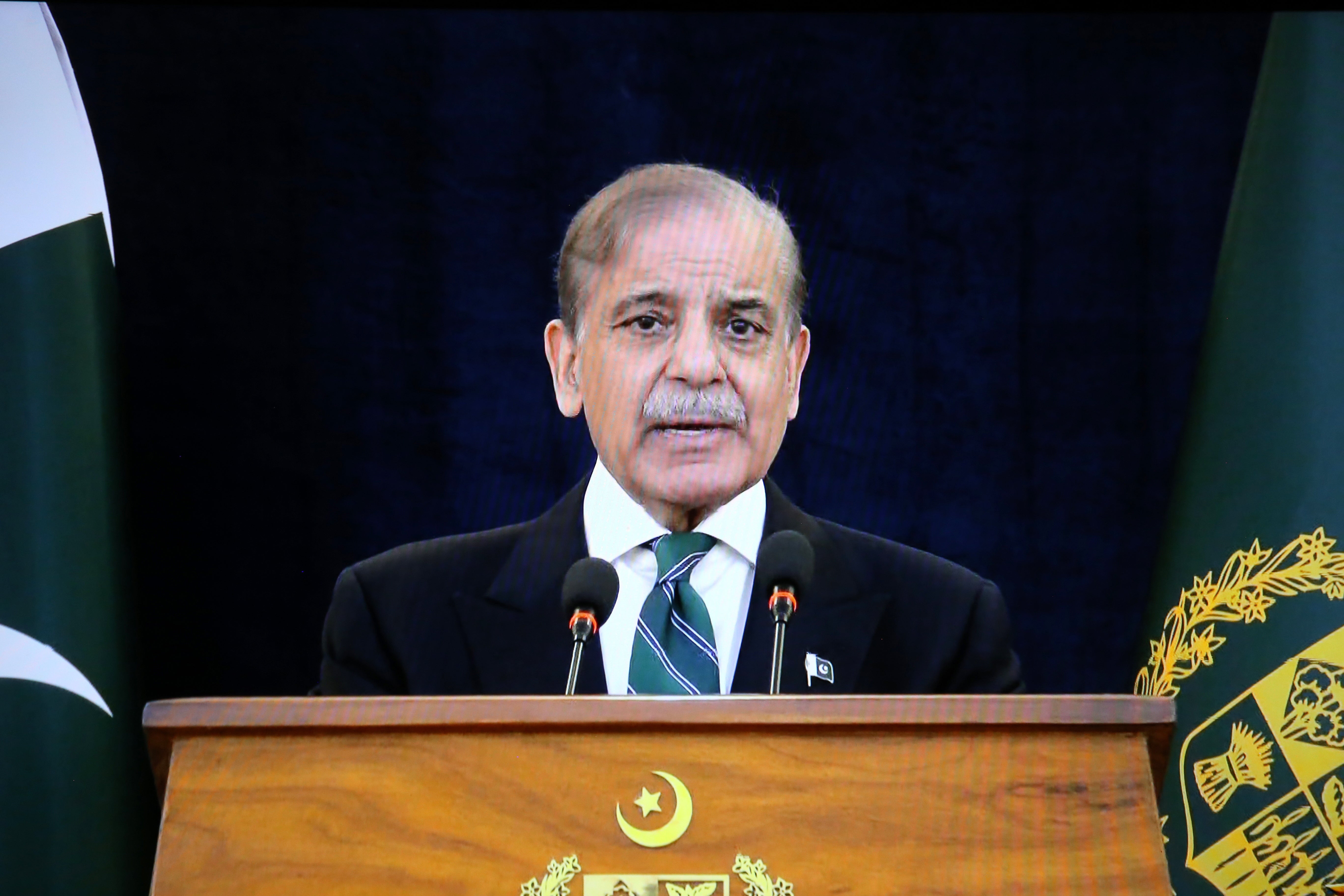
Meanwhile, Pakistan’s prime minister Shehbaz Sharif claimed victory for his country, describing the ceasefire as a “historic” win secured through a “professional and effective” response by its armed forces.
“We decided to respond to the enemy in a language that it understands very well,” he declared in a nationally televised address, accusing India of using the Pahalgam attack as a pretext.
India sidesteps US role in ceasefire as Pakistan showers praise on Washington
13:40 , Namita SinghIndia has confirmed a ceasefire agreement with Pakistan but pointedly omitted any reference to American mediation, even as Pakistani leaders hailed the US for brokering the deal.
The announcement followed a statement by US president Donald Trump on social media declaring that India and Pakistan had agreed to a “full and immediate ceasefire”.
Pakistan was quick to endorse the announcement, with prime minister Shehbaz Sharif thanking Mr Trump for his “leadership and proactive role”.
Senior Pakistani figures, including deputy prime minister Ishaq Dar and PPP chairman Bilawal Bhutto Zardari, echoed the praise.India’s ministry of external affairs issued its own statement shortly after but maintained that the understanding had been reached bilaterally.

“It was agreed between them that both sides would stop all firing and military action on land and in the air and sea with effect from 1700 hours Indian Standard Time,” said foreign secretary Vikram Misri.
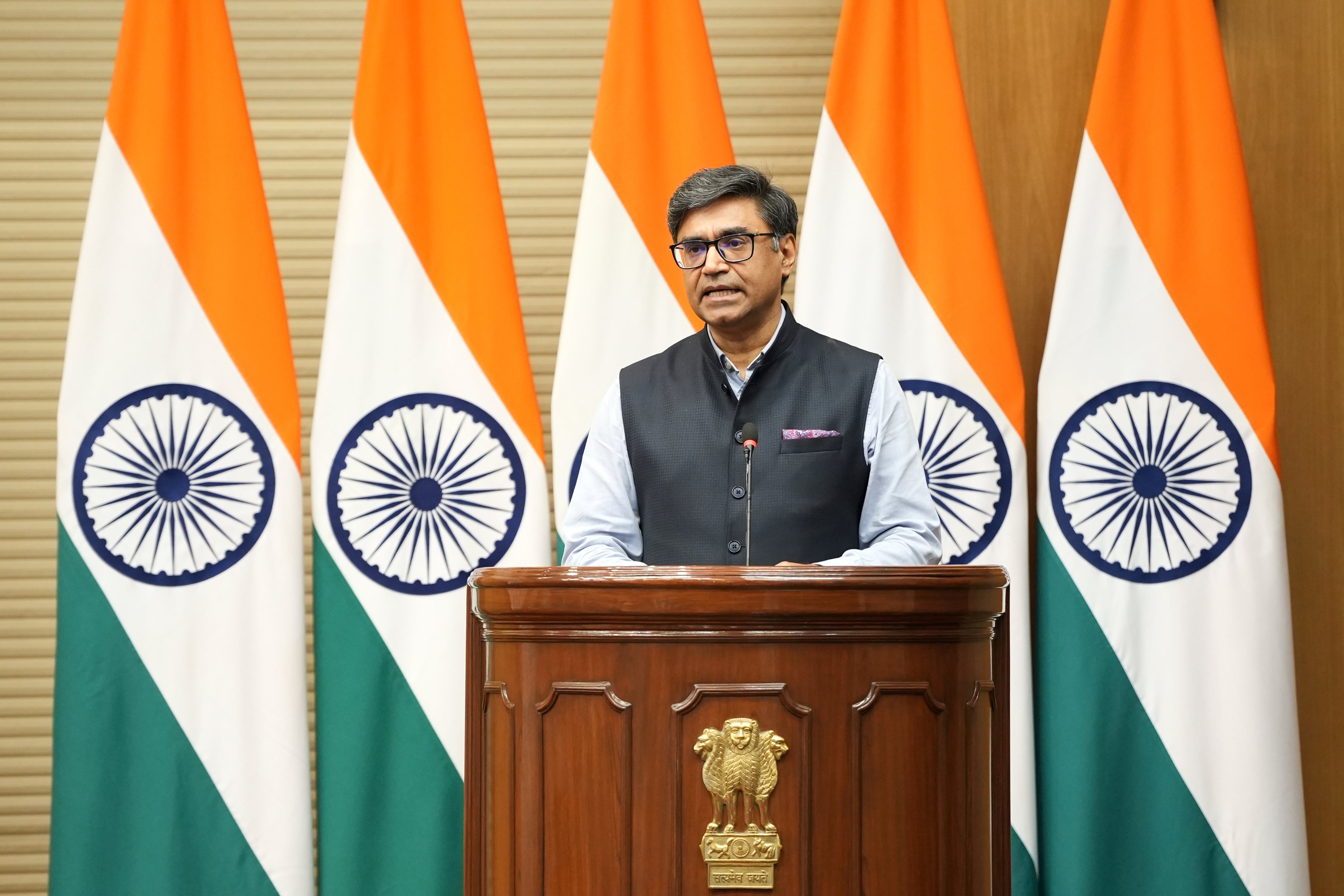
His remarks made no mention of US involvement.
External affairs minister S Jaishankar also refrained from acknowledging Washington’s role. Analysts view India’s reticence as consistent with its long-standing opposition to third-party mediation. “India has never accepted mediation in any dispute,” Dr Aparna Pande of the Hudson Institute told the CNN.
“Pakistan, on the other hand, has always sought international involvement.”
India and Pakistan don’t fight wars like other countries. Here’s why
13:20 , Namita SinghIndia and Pakistan have fought three full-scale wars since they gained independence from British India in 1947.
They’ve also had dozens of skirmishes and conflicts, including one atop a glacier dubbed the coldest and highest-altitude battlefield in the world.
The latest escalation follows a deadly gun attack on tourists that India blames Pakistan for — Islamabad denies any connection. But they don’t fight wars like other countries.
The dominant factor is their nuclear weapons arsenal, a distinct way of deterring major attacks and a guarantee that fighting doesn’t get out of hand, even when the situation is spiraling.
Here’s how — and why — Pakistan fight the way they do:

India and Pakistan don’t fight wars like other countries. Here’s why
JD Vance said the India-Pakistan conflict was ‘none of our business’ - until receiving ‘alarming intelligence’: report
13:00 , Namita SinghVice president JD Vance was the one to call Indian prime minister Narendra Modi to encourage ceasefire talks over the escalating conflict with Pakistan after the US received “alarming intelligence,” according to a report.
The vice president, Secretary of State and interim national security adviser Marco Rubio, and White House chief of staff Susie Wiles were compelled to increase America’s role in the conflict after receiving the intelligence Friday morning, CNN reports.
It marked a change of position for Vance, who said that the dangerous conflict between the two nuclear powers was “none of our business”.

Vance ‘called Modi after receiving alarming intelligence about India-Pakistan’
India-Pakistan truce was in peril hours after ceasefire announcement
12:40India and Pakistan reached a ceasefire on Saturday afternoon, seeking to end the most serious military confrontation between the nuclear-armed rivals in decades, but reports of explosions in Indian-administered Kashmir after the deal revealed the situation’s fragility.
Hours after the ceasefire was announced by Donald Trump, blasts were heard in Srinagar city in Kashmir. Projectiles and flashes were also seen in the night sky over Jammu to the south, authorities and residents said.
More on how the situation was brought under control in this report:

India and Pakistan ceasefire in jeopardy as blasts heard hours after deal announced
Pictures: Semblance of normalcy after ceasefire announcement
12:20 , Namita Singh
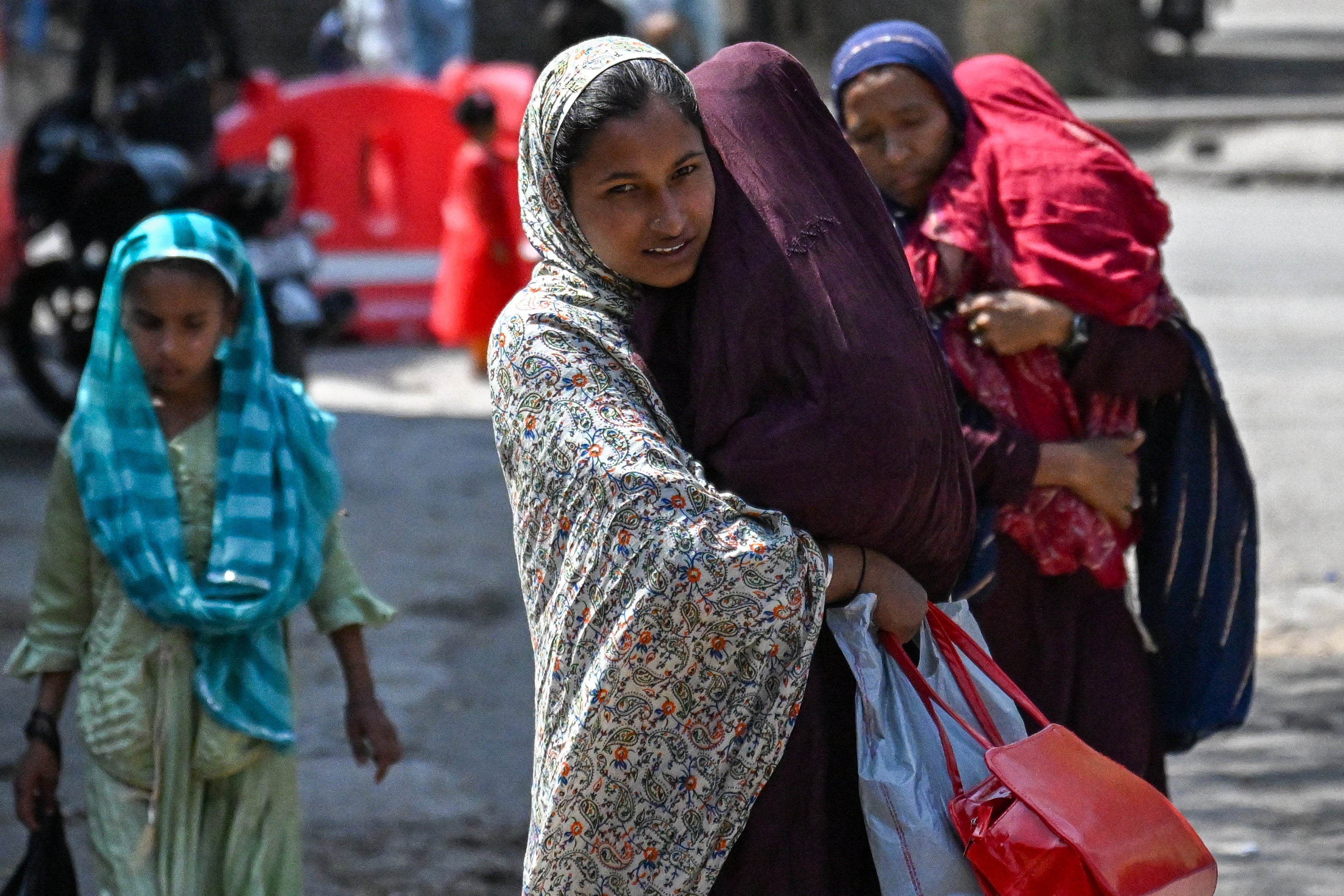
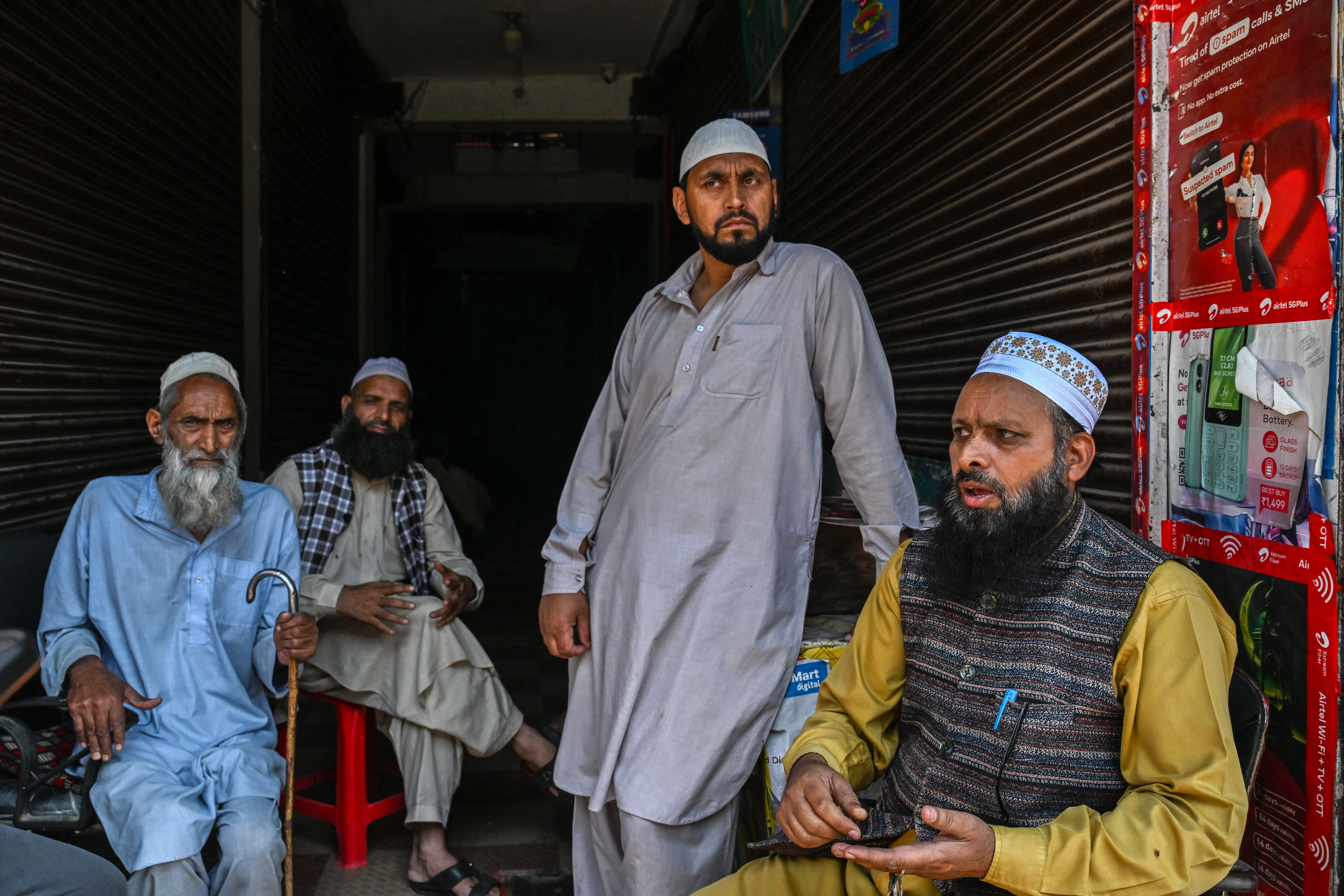
Pope Leo XIV appeals for 'no more war' in first Sunday message
12:00 , Namita SinghPope Leo XIV appealed to the world's major powers for "no more war" in his first Sunday message to crowds in St Peter's Square since his election as pontiff.
The new pope, elected on 8 May, called for an "authentic and lasting peace" in Ukraine and a ceasefire in Gaza and release of all Israeli hostages.
Leo also welcomed the recent ceasefire between India and Pakistan, and said he was praying to God to grant the world the "miracle of peace".
"No more war!" the pope said, repeating a frequent call of the late Pope Francis and noting the recent 80th anniversary of the end of the Second World War, which killed some 60 million people.
Leo said today's world was living through "the dramatic scenario of a Third World War being fought piecemeal”, again repeating a phrase coined by Francis.
The new pope said he carries in his heart the "suffering of the beloved people of Ukraine".
He appealed for negotiations to reach an "authentic, just and lasting peace".
Leo said he was glad to hear of the recent India-Pakistan ceasefire and hoped negotiations would lead to a lasting accord between the nuclear-armed neighbors.
He added: "But there are so many other conflicts in the world!"
Trump says he will increase trade with India and Pakistan and find solution to Kashmir dispute
11:40 , Namita SinghDonald Trump pledged to “increase trade substantially” with India and Pakistan and find a solution to the long-running Kashmir dispute after the South Asian nuclear powers reached a ceasefire on Saturday afternoon.
In a post on his Truth Social platform, the US president also took credit for the ceasefire that was agreed with support from his administration.
India and Pakistan exchanged heavy fire for four straight days in their worst conflict in more than a quarter century, launching missiles and drones at each other’s military bases and leaving dozens of people dead.
But just as the situation appeared to be spiralling, Mr Trump announced that a ceasefire had been agreed following diplomatic intervention and pressure from the US.New Delhi and Islamabad soon confirmed that a truce was in place.
Report:

Trump says he will work to resolve Kashmir dispute ‘after a thousand years’
India and Pakistan have been in conflict since 1947 partition. A look at its troubled legacy
11:18 , Namita SinghIndia and Pakistan’s latest military conflict has expanded, days after India carried out airstrikes in Pakistan that followed an attack by gunmen on tourists in India-controlled Kashmir last month.
The two nuclear-armed rivals have exchanged artillery shells, gunfire, missiles and drones, killing civilians on both sides and raising concerns of a wider war.
The fresh round of confrontation last week is yet another escalation of a decades-long conflict over the disputed Kashmir region that began after a bloody partition of India in 1947.
Here’s a look at the troubled legacy of partition that has dictated the future course of India-Pakistan relations:

India-Pakistan have been in conflict since 1947: A look at its troubled legacy
Indian air force claims it conducted 'precision strikes' on Pakistan
11:04 , Namita SinghIn a statement released on Sunday, the Indian air force said it had met its strategic objectives with “precision and professionalism”, adding the operations were “still ongoing” and further details would be shared later.
“Operations were conducted in a deliberate and discreet manner, aligned with national objectives,” the force said about its strikes against Pakistan, urging the public to avoid speculation and not share unverified information.
The Indian Air Force (IAF) has successfully executed its assigned tasks in Operation Sindoor, with precision and professionalism. Operations were conducted in a deliberate and discreet manner, aligned with National Objectives.
— Indian Air Force (@IAF_MCC) May 11, 2025
Since the Operations are still ongoing, a detailed…
The Indian military conducted strikes inside Pakistan on 7 May in what it said was retaliation for the 22 April attack in Pahalgam that killed 26 people, mostly Hindu tourists.
Nine "terror facilities" across Pakistan and Pakistan-occupied Kashmir were targeted, the air force claimed, adding that the sites were selected based on credible intelligence linking them to militant activity.
The operation invited retaliatory strikes and shelling from Pakistan. Despite the escalation, however, the two nations reached a ceasefire agreement on Saturday afternoon.
“Pakistan has used swarm drones to intrude into Indian airspace, but they have met with a proportionate and effective response,” the air force said.
India sidesteps US role in ceasefire as Pakistan showers praise on Washington
10:33 , Namita SinghIndia has confirmed a ceasefire agreement with Pakistan but pointedly omitted any reference to American mediation, even as Pakistani leaders hailed the US for brokering the deal.
The announcement followed a statement by US president Donald Trump on social media declaring that India and Pakistan had agreed to a “full and immediate ceasefire”.
Pakistan was quick to endorse the announcement, with prime minister Shehbaz Sharif thanking Mr Trump for his “leadership and proactive role”.
Senior Pakistani figures, including deputy prime minister Ishaq Dar and PPP chairman Bilawal Bhutto Zardari, echoed the praise.
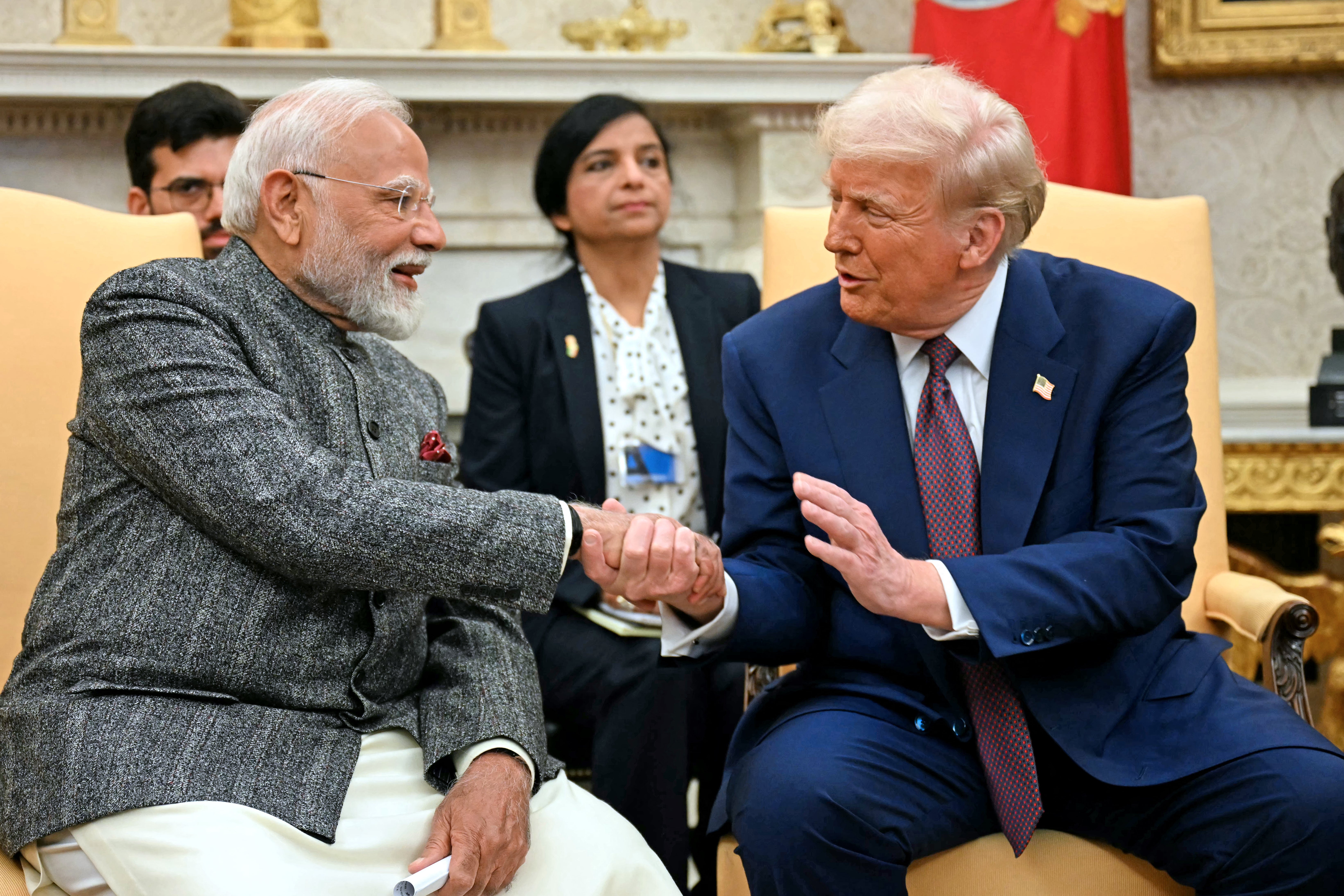
India’s ministry of external affairs issued its own statement shortly after but maintained that the understanding had been reached bilaterally.
“It was agreed between them that both sides would stop all firing and military action on land and in the air and sea with effect from 1700 hours Indian Standard Time,” said foreign secretary Vikram Misri. His remarks made no mention of US involvement.
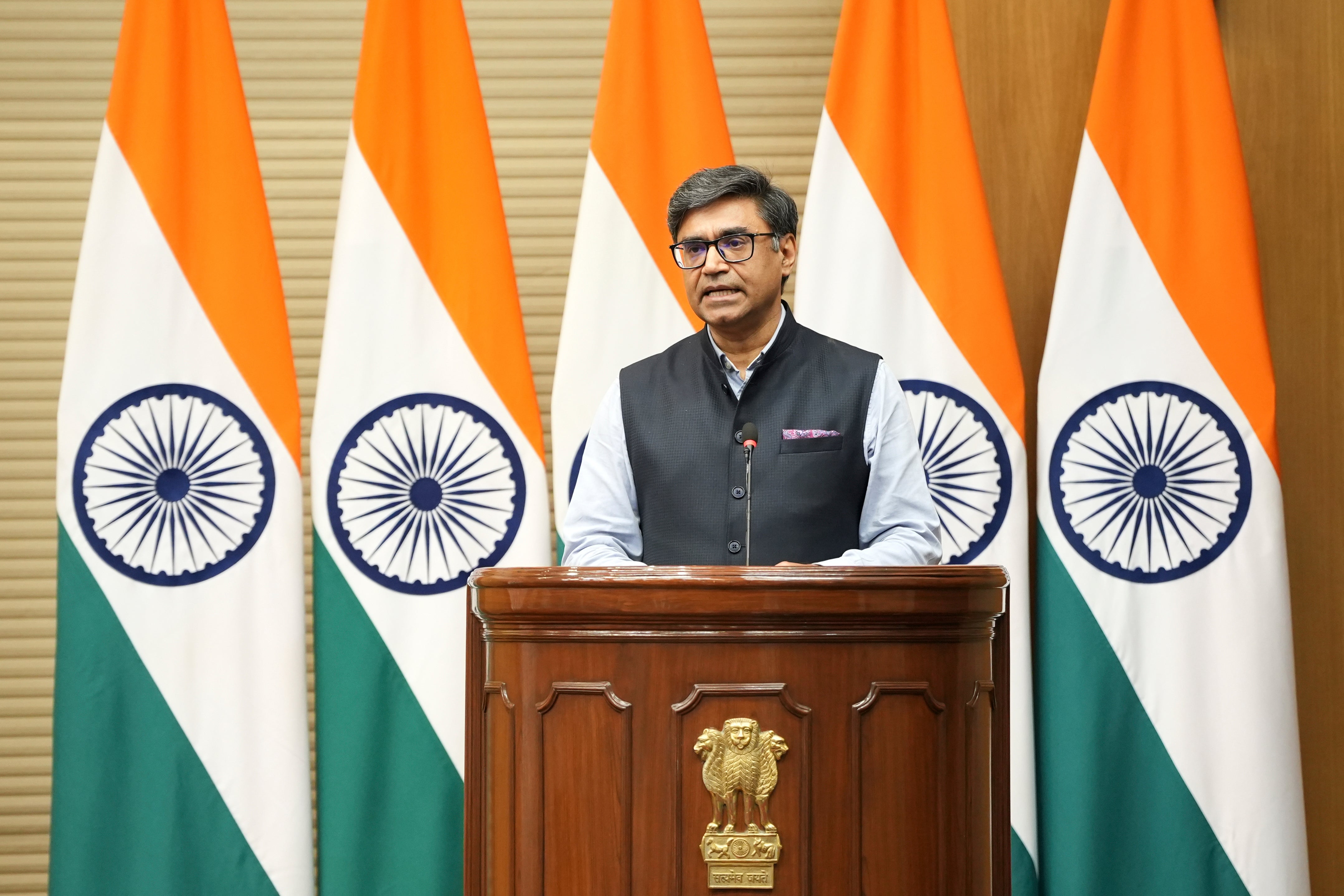
External affairs minister S Jaishankar also refrained from acknowledging Washington’s role. Analysts view India’s reticence as consistent with its long-standing opposition to third-party mediation.
“India has never accepted mediation in any dispute,” Dr Aparna Pande of the Hudson Institute told the CNN.
“Pakistan, on the other hand, has always sought international involvement.”
Both India and Pakistan race to claim victory after ceasefire deal
10:13 , Namita SinghIndia and Pakistan are locked in a war of words as both nations seek to frame the recent ceasefire understanding as their own strategic triumph following days of cross-border hostilities.
Defence minister Rajnath Singh said on Sunday that Operation Sindoor, launched after the deadly Pahalgam terror attack that killed 26 civilians, struck deep into Pakistan’s military infrastructure.

“The Indian Army has displayed valour and courage as well as restraint... the sound of Indian forces was felt even in Rawalpindi,” he said, hailing the action as a symbol of “India’s political, social and strategic will.”

Meanwhile, Pakistan’s prime minister Shehbaz Sharif claimed victory for his country, describing the ceasefire as a “historic” win secured through a “professional and effective” response by its armed forces.
“We decided to respond to the enemy in a language that it understands very well,” he declared in a nationally televised address, accusing India of using the Pahalgam attack as a pretext.
Operation Sindoor shook Rawalpindi, says Rajnath Singh
09:59 , Namita SinghIndian defence minister Rajnath Singh on Sunday said India’s recent military action in response to the Pahalgam terror attack sent shockwaves through Pakistan, including its army headquarters in Rawalpindi.
Speaking via video link at the inauguration of a BrahMos missile production unit in Lucknow, part of the Uttar Pradesh Defence Industrial Corridor, Mr Singh praised the Indian Army’s precision in executing Operation Sindoor.
The Indian Army has displayed valour and courage as well as restraint and has given a befitting reply by attacking many military bases of Pakistan.
“The sound of Indian forces was felt even in Rawalpindi where the headquarters of the Pakistani army is located.”
Mr Singh said the operation delivered justice to the perpetrators of the 22 April Pahalgam attack, which left 26 civilians dead.

He described the response as a demonstration of “India's political, social and strategic will” and warned that “even the land across the border will not be safe for the terrorists and their masters”.
He stressed that Indian forces deliberately avoided civilian infrastructure, contrasting it with Pakistan’s alleged targeting of religious sites.
Indian opposition leader demands special parliament session as prime minister fails to address the nation
09:45 , Namita SinghIndian opposition leader Rahul Gandhi has written to prime minister Narendra Modi demanding a special parliamentary session on Operation Sindoor, the name that the Indian military gave it strikes on Pakistan.
“I reiterate the unanimous request of the opposition to convene a special session of parliament immediately,” he wrote.
LoP @RahulGandhi writes to @PMOIndia repeats request for special session of parliament on #PahalgamTerroristAttack & #OperationSindoor. While faced with war,country backed govt & armed forces unquestionably.But In a democracy must ask Qs on national security & #Ceasefire details. pic.twitter.com/YKWLVzMe2e
— Smita Sharma (@Smita_Sharma) May 11, 2025
“It is crucial for the people and their representatives to discuss the Pahalgam terror attack, Operation Sindoor and today’s ceasefire, first announced by US president Trump.”
The letter came after the prime minister failed to directly address the nation in the wake of the military action and subsequent ceasefire.
Modi holds high-level security meeting following ceasefire with Pakistan
09:41 , Namita SinghPrime minister Narendra Modi held a high-level security meeting in New Delhi on Sunday, a day after India and Pakistan agreed to halt cross-border military action.
The meeting was attended by defence minister Rajnath Singh, external affairs minister S Jaishankar, national security adviser Ajit Doval, chief of defence staff General Anil Chauhan, and the chiefs of the Army, Navy, and Air Force, according to the Press Trust of India.

India had earlier accused Pakistan of breaching the ceasefire agreement within hours of the truce and urged Islamabad to “take appropriate steps” to uphold the understanding and “deal with the situation with seriousness and responsibility”.
While no further violations were reported overnight, residents in several border regions remain uneasy after several days of heavy shelling, drone strikes, and blackouts that preceded the ceasefire.
Pakistan reopens airspace following ceasefire, but Indian aircraft still barred
09:30 , Namita SinghPakistan reopened its airspace to civilian aircraft on Saturday evening after announcing a ceasefire with India, but restrictions on Indian airlines and aircraft remain in place.
A new Notice to Airmen (Notam) issued by the Pakistan Civil Aviation Authority (PCAA) cancelled earlier restrictions that had closed the country’s airspace until noon on Sunday, following a sharp escalation in military hostilities between the two neighbours.
The original ban, issued in the early hours of Saturday, closed Pakistani airspace to all flights from 3.15am to 12pm local time.
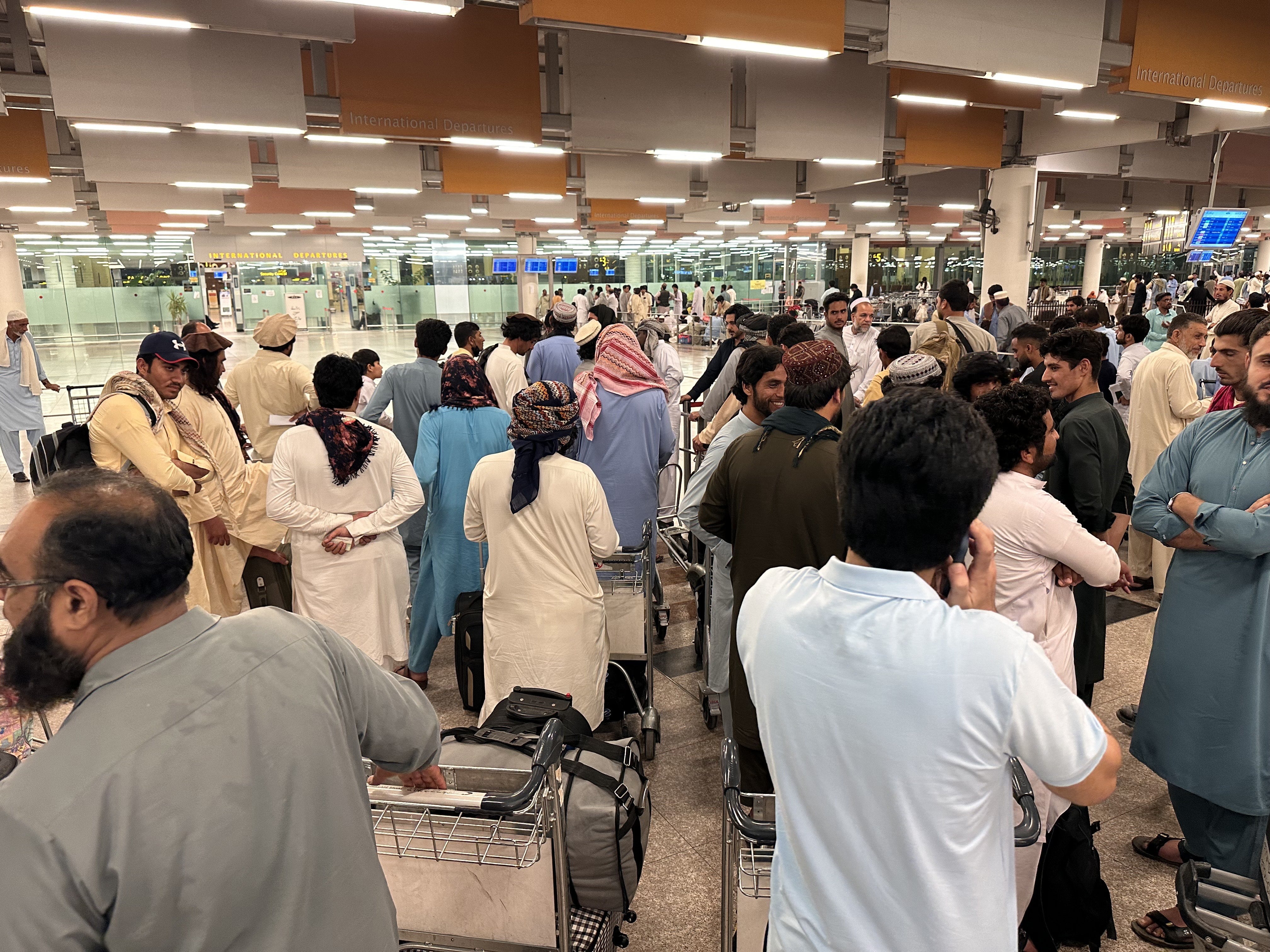
A second Notam extended the closure until Sunday midday, but this was later revoked after the ceasefire was declared.
Despite this reversal, a separate Notam banning Indian aircraft from entering Pakistani airspace—first enforced on 24 April—remains active. The PCAA database still lists the restriction on Indian carriers as “valid”. India’s reciprocal ban on Pakistani aircraft also continues to be in effect.
India had earlier launched coordinated airstrikes on nine targets inside Pakistan under “Operation Sindoor” in the early hours of Wednesday, prompting a large-scale retaliation from Islamabad involving missiles and drones aimed at Indian military sites in the north and west.
In response to the spiralling conflict, India had initially shut down 25 airports near the Pakistan border or co-located with key air force bases. This was extended to include 32 airports by Friday evening, with closures now set to remain in place until 5.29am India time on 15 May, reported the Indian Express.
Although Pakistan had been carrying out attacks for several days, it did not impose restrictions on its own civil air traffic until after India struck back.
Indian authorities had criticised Islamabad for “using civilian aircraft as shields”, alleging that Pakistan allowed commercial flights to operate close to the border during active conflict.
BCCI asks IPL teams to regroup by Tuesday as league eyes immediate restart
09:20 , Namita SinghThe Indian cricket board has directed all IPL teams, barring Punjab Kings, to reconvene by Tuesday as it looks to resume the tournament following a sudden suspension last week.
The Board of Control for Cricket in India (BCCI) has informally told franchises that it plans to restart the league and is working on a revised schedule that could include multiple double-headers to ensure the tournament concludes by its original end date of 25 May.
Franchises have been asked to coordinate travel plans for their overseas players, many of whom flew home shortly after the league was put on hold on Friday.
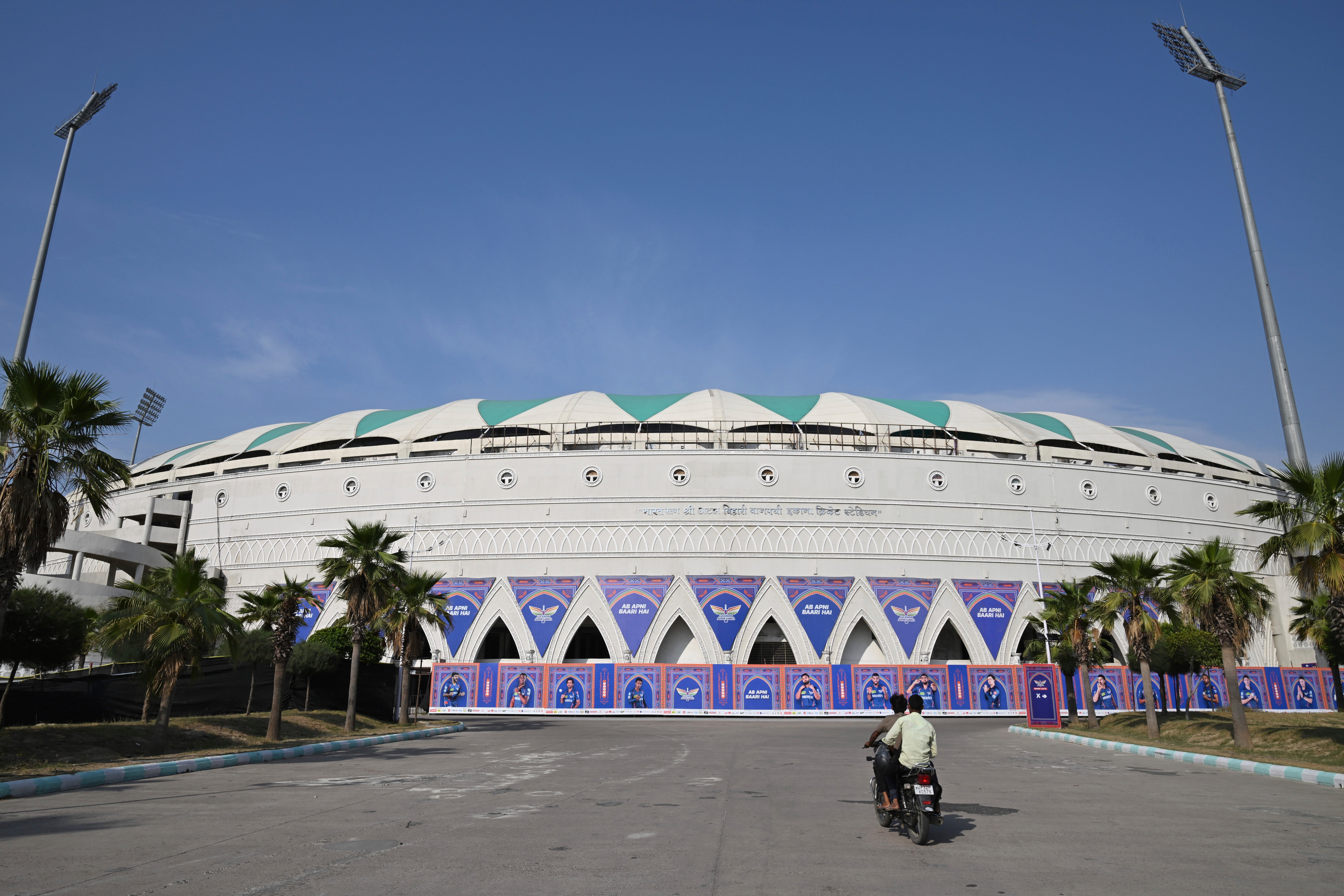
“All franchises have been told to inform its team to report to their respective destination by Tuesday. Punjab will have a neutral venue, so their destination is yet to be confirmed. The board is planning to have more double headers so that they can finish the IPL as per its scheduled day,” a BCCI official told The Indian Express.
IPL chairman Arun Dhumal confirmed that discussions are underway following a ceasefire agreement between India and Pakistan.
“Ceasefire has just been announced. We now explore the possibility of resuming and concluding the IPL,” Mr Dhumal told The Indian Express.
“We need to work out the venue dates and everything, and we would now be speaking to all the stakeholders, including team owners, broadcasters, and everyone involved… Most importantly, we will have to consult with the government.”
How do India and Pakistan’s armies and nuclear arsenals compare to each other?
09:10 , Namita SinghThe dramatic flare-up of tensions and targeted cross-border strikes between India and Pakistan last week has raised the spectre of a first all-out war between the two nuclear-armed neighbours in decades.
The two countries have fought two wars since independence over the disputed region of Kashmir – and three in total – and the picturesque Himalayan valley is once again at the centre of their standoff.
Already arguably the most highly militarised region in the world, with hundreds of thousands of troops and paramilitary forces deployed to maintain security in Indian-administered Kashmir at the best of times.
But taken together, the Indian and Pakistani militaries boast a total of around 2 million armed forces personnel. It means an all-out conflict would be one of the largest by number of combatants since the end of the Second World War.
Here’s how the two militaries compare against each other:
IMF releases £750m loan to Pakistan right before ceasefire
08:50 , Namita SinghThe International Monetary Fund approved the disbursement of about $1bn (£752m) to Pakistan on Friday, drawing protests from India as military conflict between the two nuclear-armed neighbours escalated.
The money is part of a $7bn (£5.3bn) loan programme that the lender agreed with Islamabad last year. The loan, which Pakistan is scheduled to receive in installments over 37 months, is aimed at boosting its ailing economy. It’s reportedly designed to restore macroeconomic stability through fiscal discipline, monetary tightening and structural reforms.
The IMF has also approved a separate $1.4bn (£1bn) loan to support climate resilience in the South Asian nation but hasn’t begun releasing the funds yet.
What was the fund aimed at? Read more here in this report:
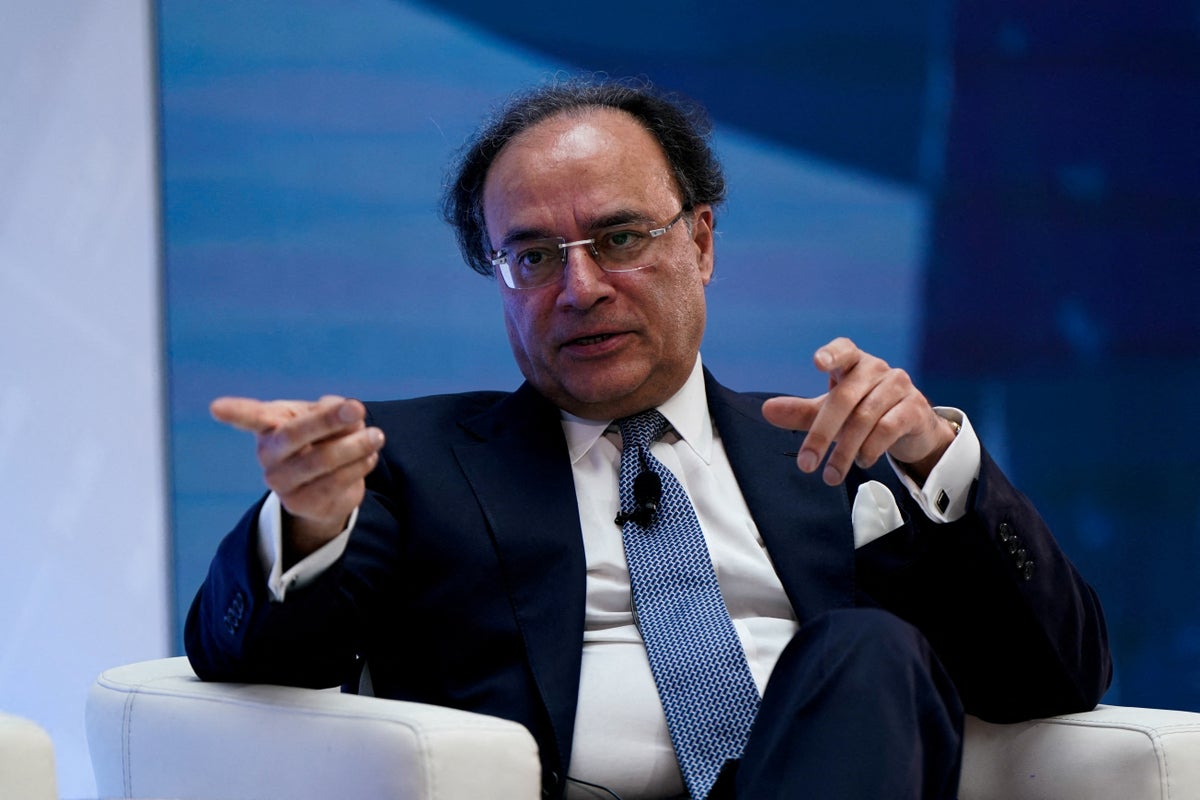
IMF releases £750m loan to Pakistan despite escalating conflict with India
Pictures: Normalcy returns as fragile truce holds
08:27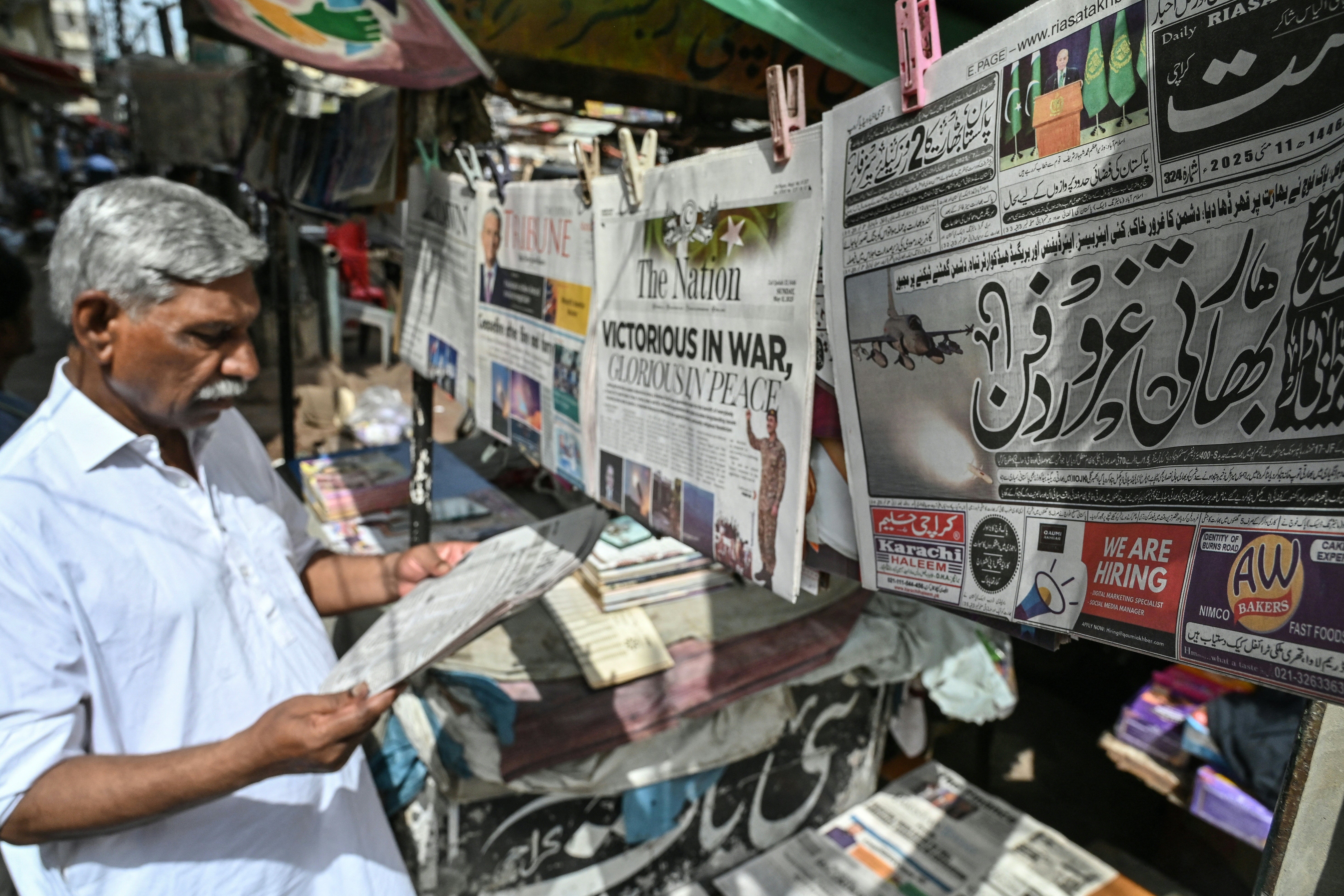

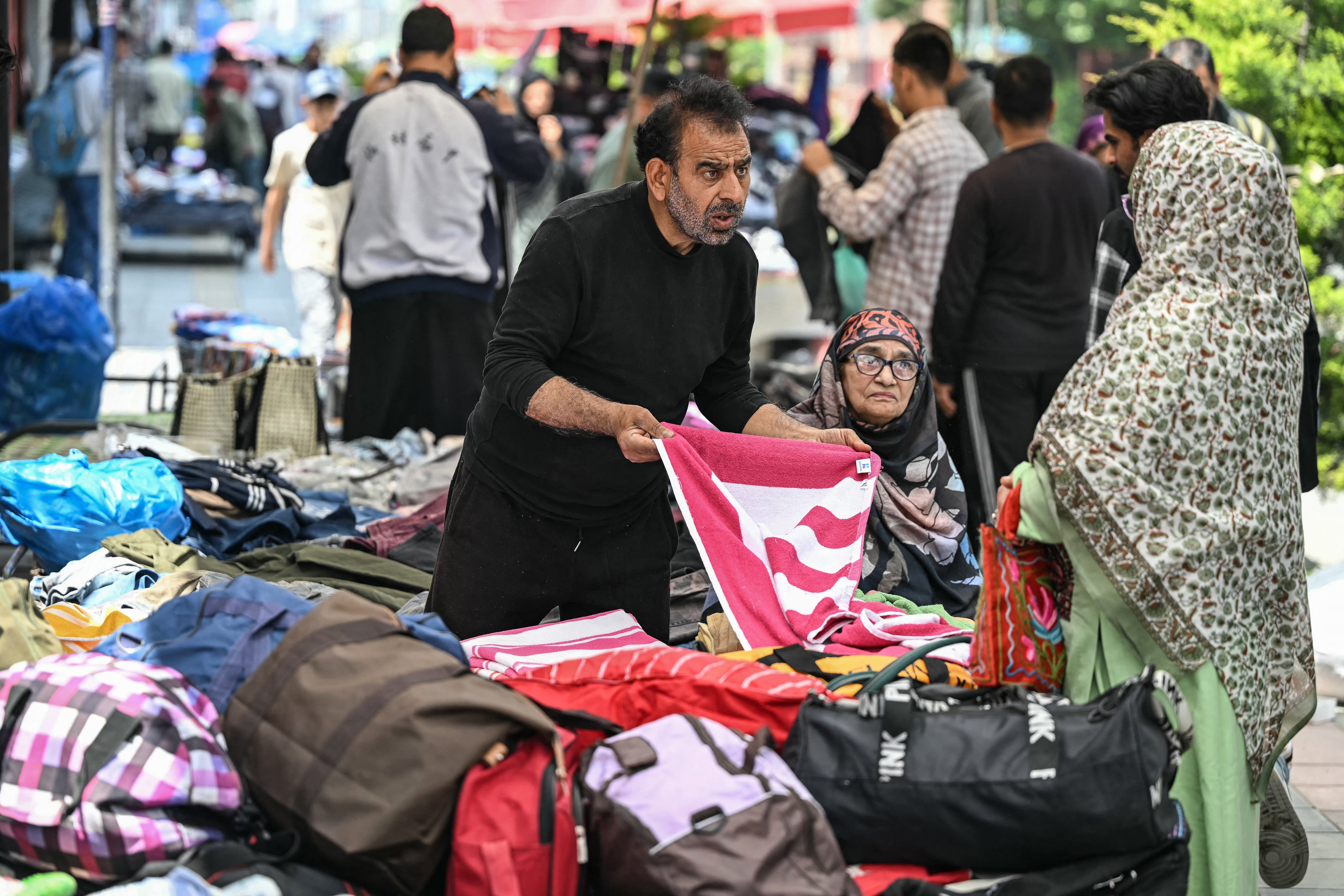
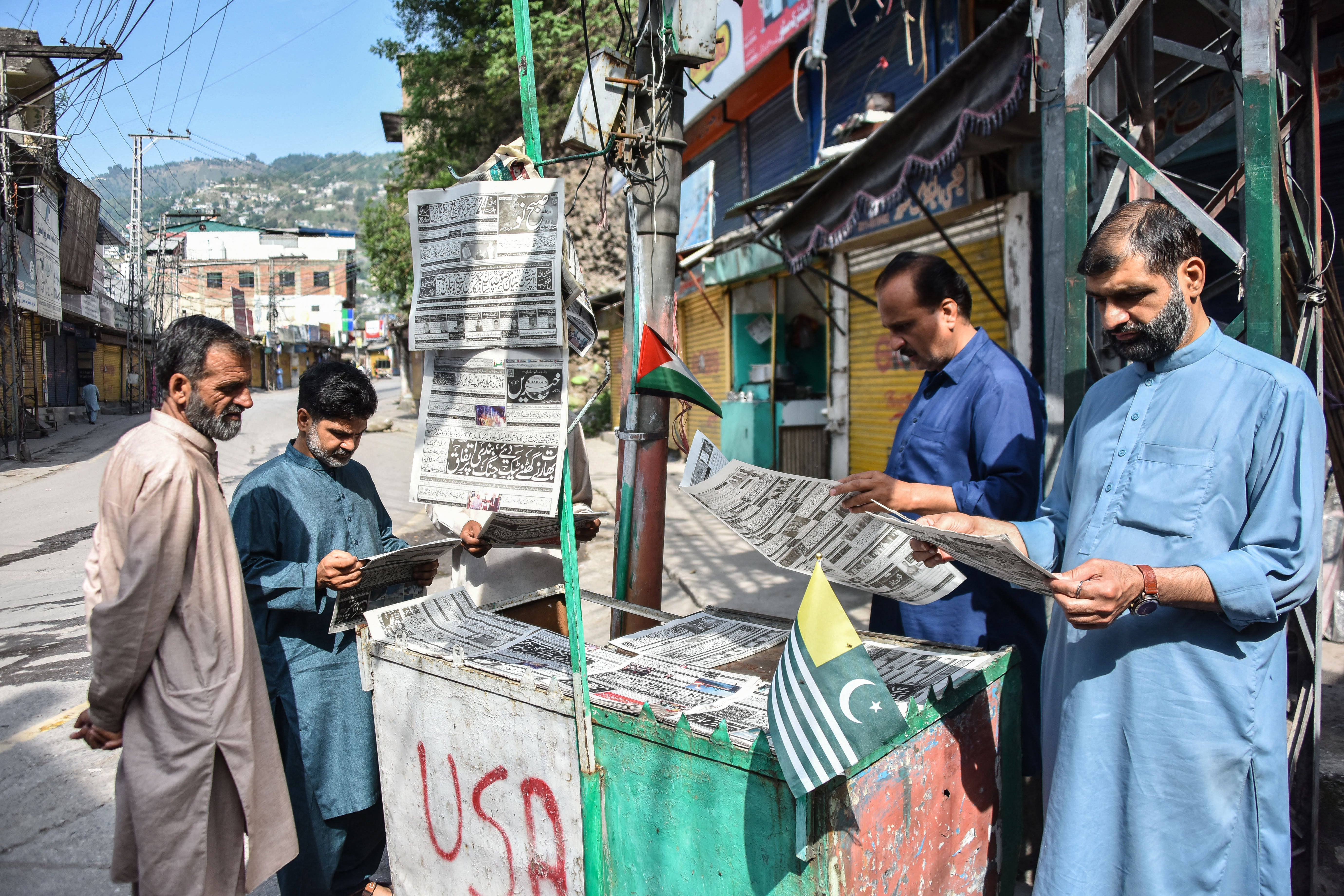
JD Vance said the India-Pakistan conflict was ‘none of our business’ - until receiving ‘alarming intelligence’: report
08:19 , Namita SinghVice president JD Vance was the one to call Indian prime minister Narendra Modi to encourage ceasefire talks over the escalating conflict with Pakistan after the US received “alarming intelligence,” according to a report.
The vice president, secretary of state and interim national security adviser Marco Rubio, and White House chief of staff Susie Wiles were compelled to increase America’s role in the conflict after receiving the intelligence Friday morning, CNN reports.
It marked a change of position for Vance, who said that the dangerous conflict between the two nuclear powers was “none of our business.”

Vance ‘called Modi after receiving alarming intelligence about India-Pakistan’
Trump says he will increase trade with India and Pakistan and find solution to Kashmir dispute
08:19 , Namita SinghDonald Trump pledged to “increase trade substantially” with India and Pakistan and find a solution to the long-running Kashmir dispute after the South Asian nuclear powers reached a ceasefire on Saturday afternoon.
In a post on his Truth Social platform, the US president also took credit for the ceasefire that was agreed with support from his administration.
India and Pakistan exchanged heavy fire for four straight days in their worst conflict in more than a quarter century, launching missiles and drones at each other’s military bases and leaving dozens of people dead.
Report:

Trump says he will work to resolve Kashmir dispute ‘after a thousand years’
India and Pakistan blame each other as ceasefire violated hours after agreement
08:17 , Namita SinghIndia and Pakistan have accused each other of violating a ceasefire just hours after it was agreed following talks to end the most serious military confrontation between the nuclear-armed rivals in decades.
The ceasefire had been expected to bring a swift end to weeks of escalating clashes, including missile and drone strikes, triggered by the mass shooting of tourists last month that India blames on Pakistan - which denies the charge.
But multiple explosions were heard in two large cities of Indian-controlled Kashmir hours after the countries agreed to the deal.
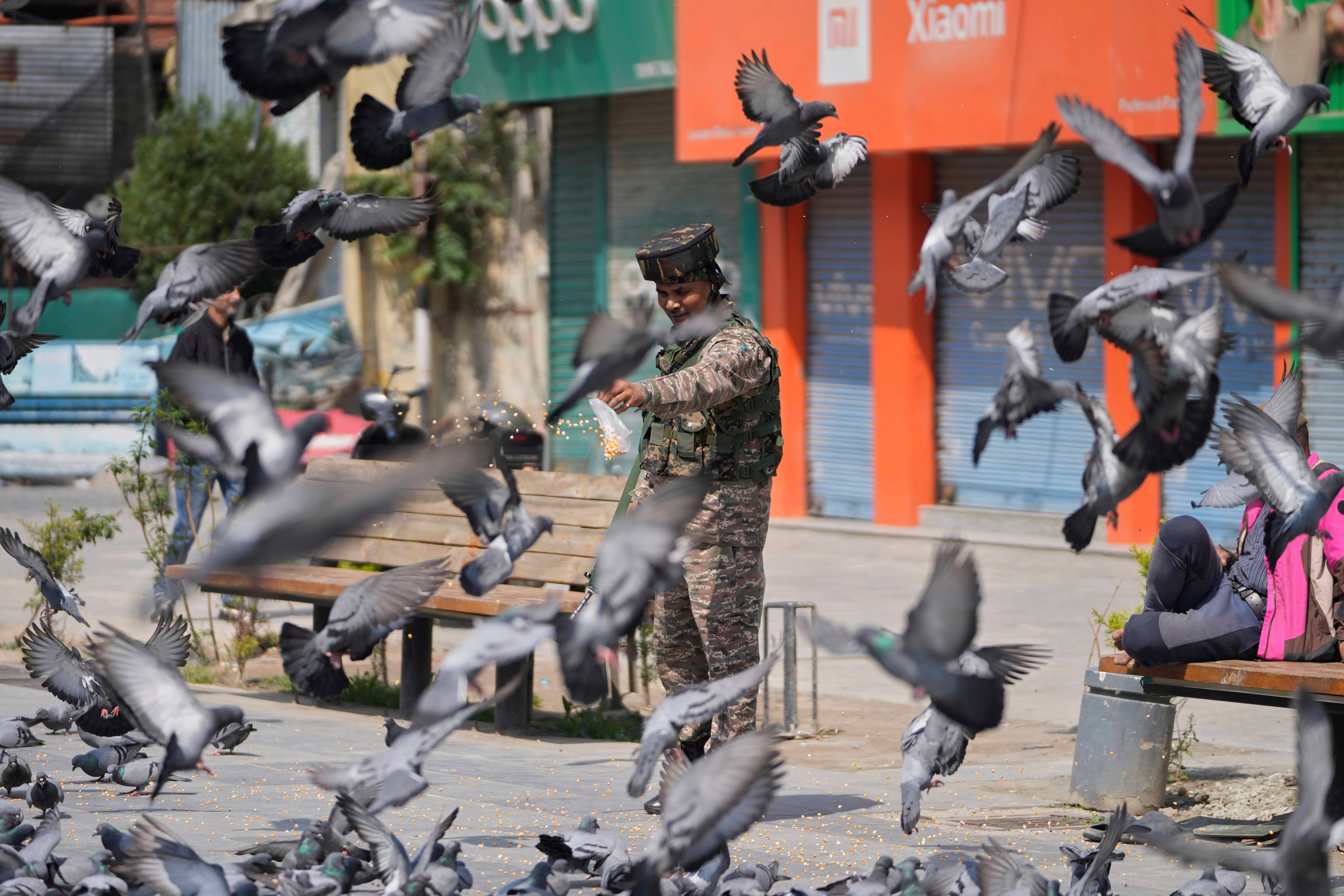
Indian foreign secretary Vikram Misri said late on Saturday "there had been repeated violations of the understanding arrived between the two countries" and accused Pakistan of breaching the agreement.
"We call upon Pakistan to take appropriate steps to address these violations and deal with the situation with seriousness and responsibility," he said at a news conference in New Delhi.
Mr Misri said the Indian army was "retaliating" for what he called a "border intrusion".
In Islamabad, Pakistan's foreign ministry blamed Indian forces for initiating the ceasefire violation.
The ministry said Pakistan remains committed to the agreement and that its forces are handling the situation with responsibility and restraint.
"We believe that any issues in the smooth implementation of the ceasefire should be addressed through communication at appropriate levels," the ministry said.
Normalcy returns as fragile ceasefire holds
07:10 , Namita SinghIn the Indian border city of Amritsar, home to the Golden Temple, the holiest of Sikh shrines, a siren sounded in the morning to resume normal activities, bringing a sense of relief to the public.
The city had been in the crosshairs after fighting started on Wednesday.
"Ever since the day terrorists attacked people in Pahalgam we have been shutting our shops very early and there was an uncertainty. I am happy that at least there will be no bloodshed on both sides," Satvir Singh Alhuwalia, 48, a shopkeeper, told Reuters.

He was referring to the 22 April terror attack at a tourist town in Kashmir which left 26 people dead, mostly Hindu visitors, and which India claimed its initial attack on Pakistan was retaliation for.
Pakistani officials said there was some firing in Bhimber in Pakistani Kashmir overnight but nowhere else, and there were no casualties.
Fragile ceasefire holds between India and Pakistan
06:38 , Namita SinghA fragile ceasefire was holding between India and Pakistan on Sunday, after hours of overnight fighting between the nuclear-armed neighbours, as US president Donald Trump said he will work to provide a solution regarding Kashmir.
The arch rivals were involved in intense firing for four days, the worst in nearly three decades, with missiles and drones being fired at each other's military installations and dozens of people killed.
A ceasefire agreement was reached after diplomacy and pressure from the United States, but within hours, artillery fire was witnessed in Indian Kashmir, the centre of much of the fighting.
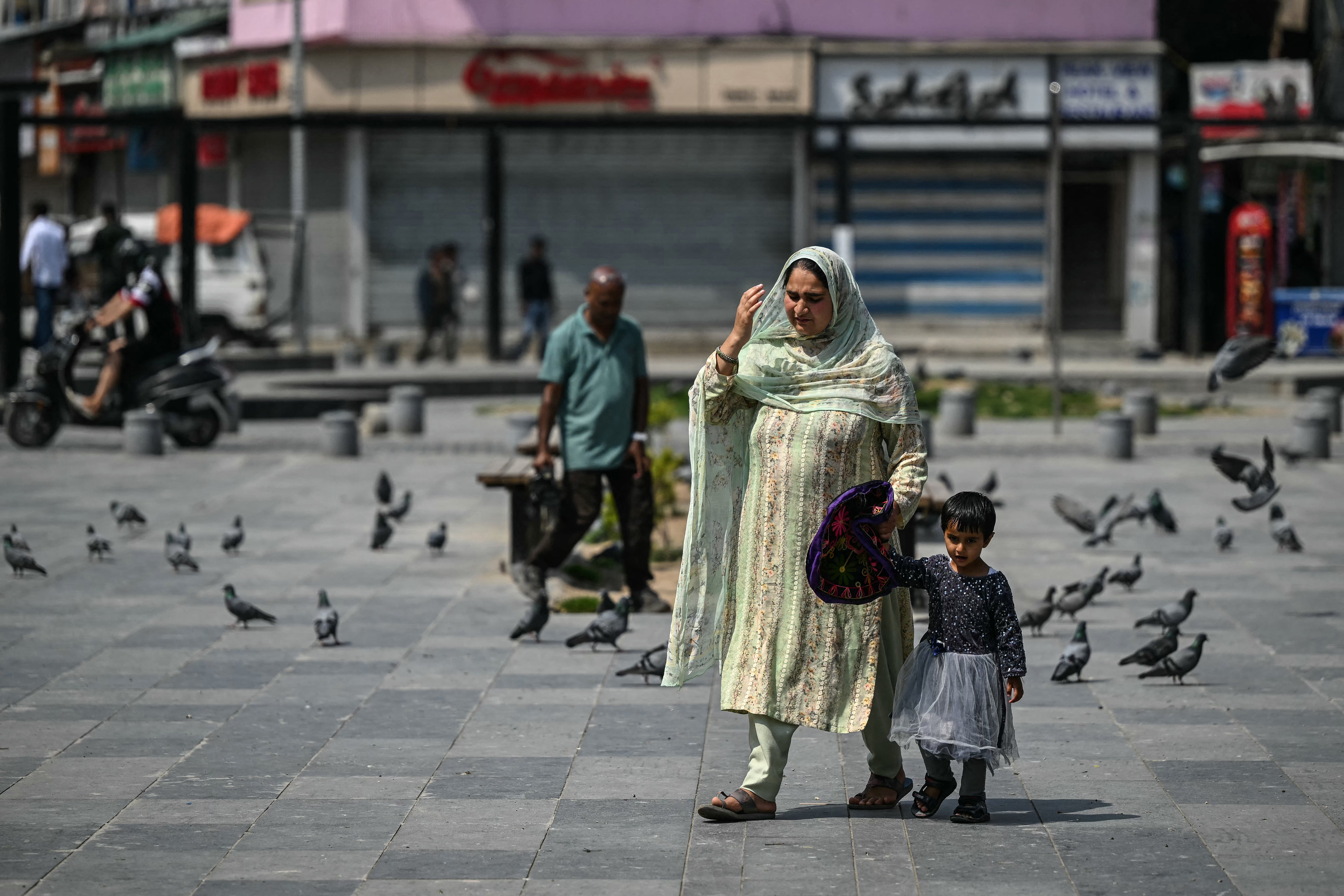
Blasts from air-defence systems boomed in cities near the border under blackout, similar to the previous two evenings, according to authorities, residents and Reuters witnesses.
Late on Saturday, India said Pakistan had violated the understanding arrived to stop firing and that the Indian armed forces had been instructed to "deal strongly" with any repetition.
In response, Pakistan said it was committed to the ceasefire and blamed India for the violations.
By dawn, the fighting and explosions reported overnight had died down on both sides of the border, according to Reuters witnesses.
Power was restored in most areas along India's border towns after a blackout the previous night.
Mr Trump praised leaders of both countries for agreeing to halt the aggression.
"While not even discussed, I am going to increase trade, substantially, with both of these great nations. Additionally, I will work with you both to see if... a solution can be arrived at concerning Kashmir," Mr Trump said in a post on Truth Social.
China urged India and Pakistan to agree to ceasefire, says Beijing
06:16 , Namita SinghChina’s top diplomat Wang Yi held separate conversations with senior officials in India and Pakistan just before the two nuclear-armed neighbours reached a ceasefire agreement, Beijing said on Saturday.
Mr Wang spoke to Pakistan’s foreign minister Ishaq Dar and India’s national security adviser Ajit Doval, calling for an immediate halt to hostilities and urging both sides to honour the truce to avoid further escalation, according to readouts from China’s foreign ministry.
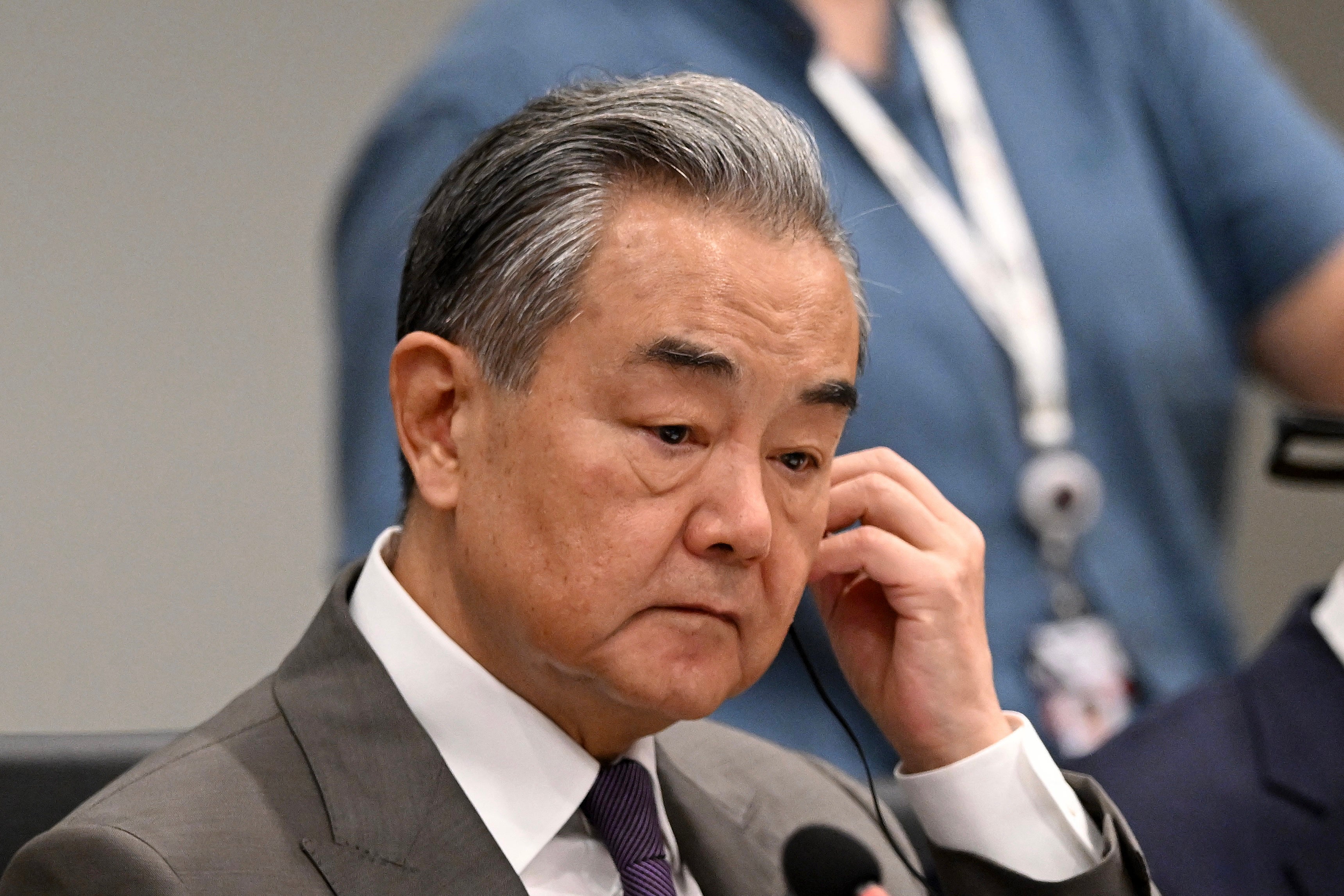
Beijing, which shares borders with both nations, has consistently pressed for restraint and dialogue, warning that continued tensions could endanger wider regional stability.
“The current international situation is complex and turbulent, and the peace and stability of Asia are hard-won and should be treasured,” Mr Wang told Mr Doval, according to the ministry.
Pakistan’s foreign office said Mr Dar expressed gratitude to China for supporting diplomatic efforts and emphasised the importance of staying in close contact.
‘Alarming intelligence’ report forced US to intervene in India-Pakistan conflict
05:26 , Namita SinghVice president JD Vance called Indian prime minister Narendra Modi to encourage ceasefire talks over the escalating conflict with Pakistan after the US received “alarming intelligence”, according to an American media report.
The vice president, secretary of state Marco Rubio, and White House chief of staff Susie Wiles were compelled to increase America’s role in the conflict after receiving the intelligence Friday morning, CNN reported.
It marked a change of position for Mr Vance, who said the dangerous conflict between the two nuclear powers was “none of our business, my colleague Rhian Lubin reports.

Vance ‘called Modi after receiving alarming intelligence about India-Pakistan’
Trump hails India-Pakistan ceasefire and vows to work on Kashmir solution
05:20 , Namita SinghDonald Trump praised the leaders of India and Pakistan for halting hostilities, saying their “brave actions” averted massive destruction. Posting on Truth Social, the US president said he would boost trade with both nations and help pursue a long-term resolution on Kashmir.
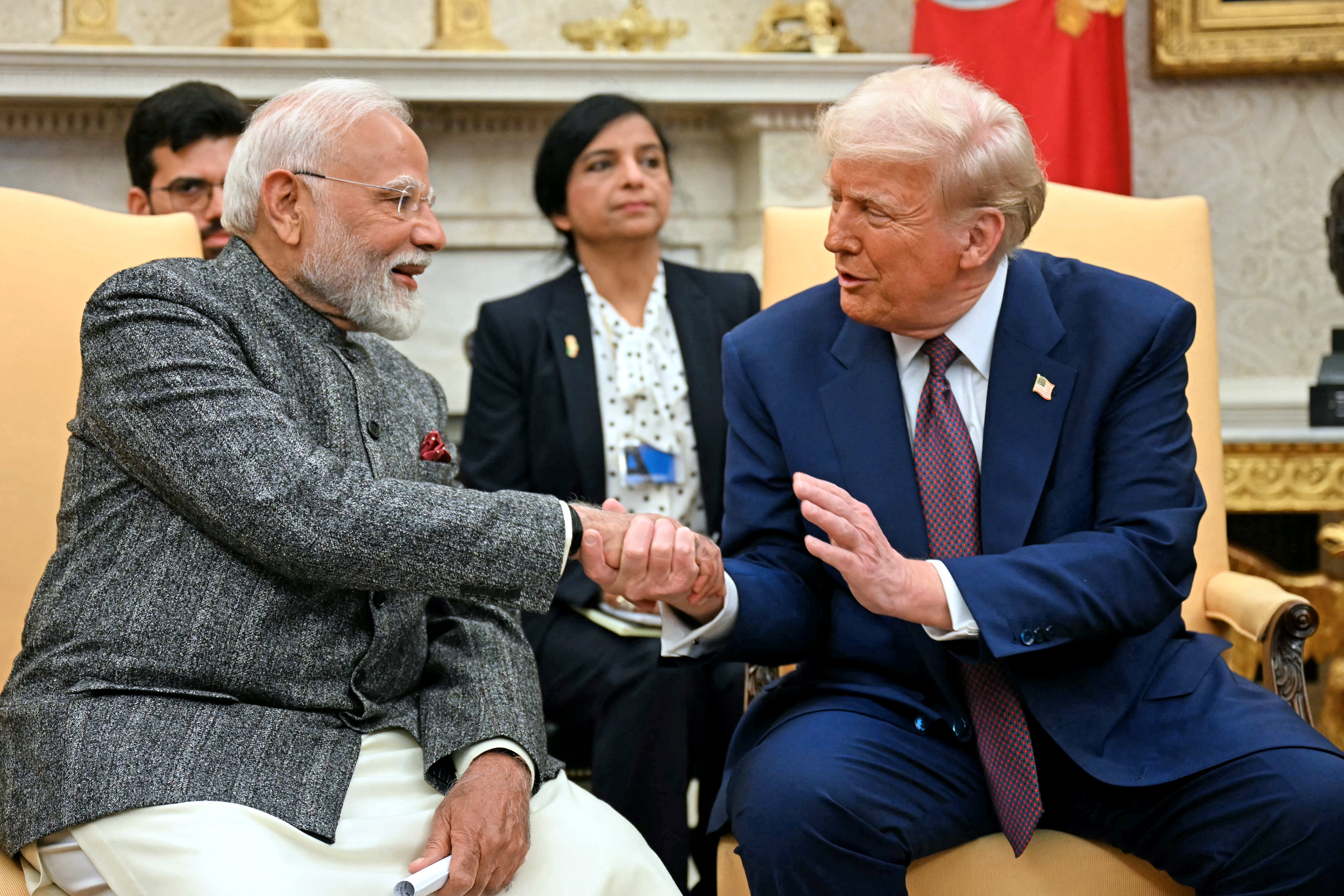
"I am very proud of the strong and unwaveringly powerful leadership of India and Pakistan for having the strength, wisdom, and fortitude to fully know and understand that it was time to stop the current aggression that could have led to the death and destruction of so many, and so much."
How did the US broker a truce between India and Pakistan
04:21 , Namita SinghA string of high-level calls led by Washington brought a temporary halt to the most serious flare-up between the nuclear-armed neighbours since the 1999 Kargil war.
A ceasefire agreement between India and Pakistan was clinched following intense behind-the-scenes mediation by the United States, ending four days of heavy cross-border hostilities that saw missile and drone attacks across several Indian and Pakistani cities, reported the Indian Express.
At the centre of this diplomatic push was a late-night call between US secretary of state and national security advisor Marco Rubio and Pakistan’s Chief of Army Staff General Asim Munir.
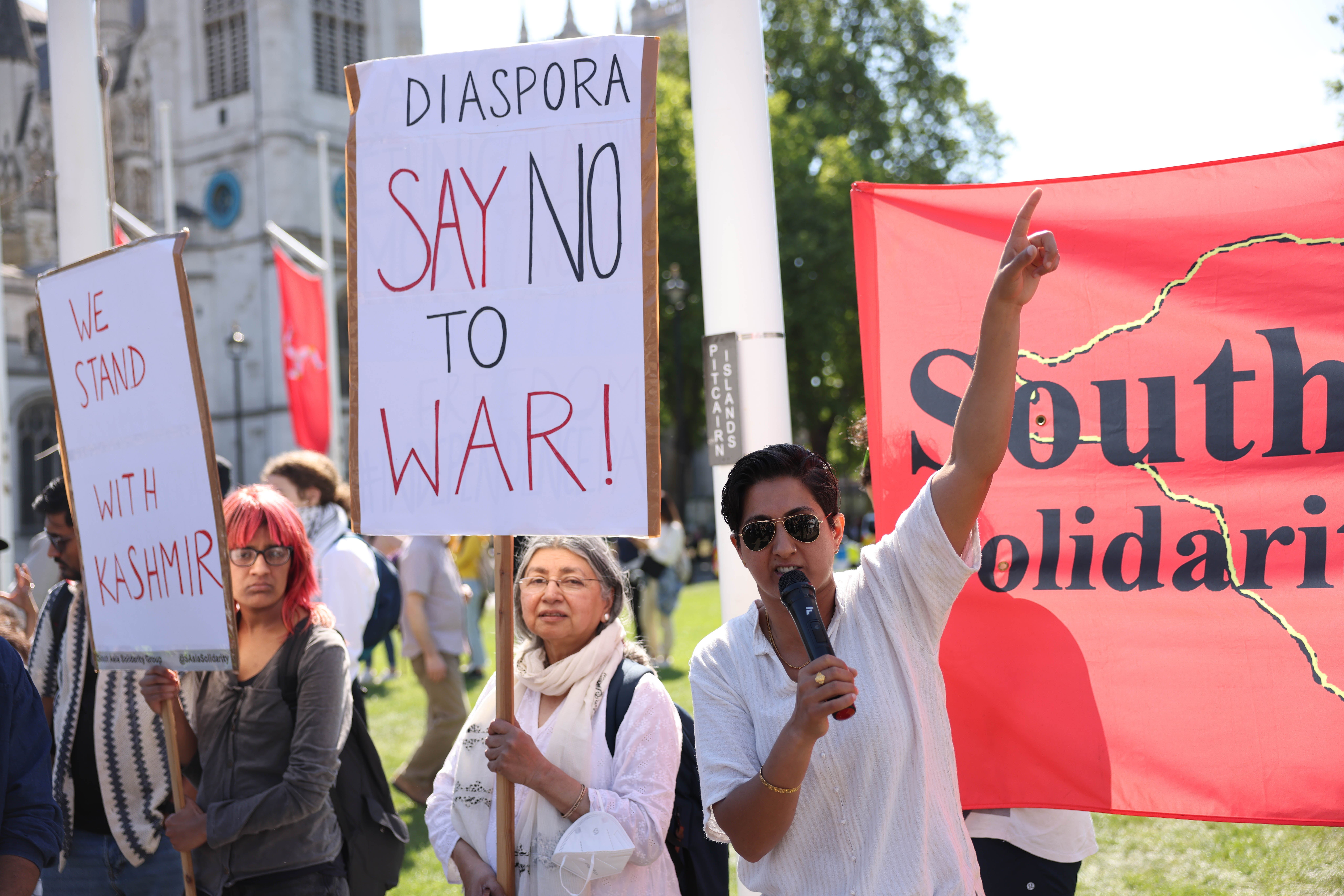
Mr Rubio said he had “offered US assistance in starting constructive talks in order to avoid future conflicts,” marking the first direct conversation between the US administration and General Munir, who is widely seen as the architect of Pakistan’s recent escalation.
The US State Department officially called the ceasefire a “US-brokered” understanding, although Indian officials continue to assert that the truce was a bilateral decision with “no third party involvement”.
As hostilities peaked, Mr Rubio, along with US vice president JD Vance, intensified diplomatic outreach, reported the Indian newspaper.
Mr Rubio spoke to India’s external affairs minister Subrahmanyam Jaishankar on 1 May and again on 8 May, urging “immediate de-escalation” and voicing “US support for direct dialogue between India and Pakistan".
In parallel, he was also in contact with Pakistani prime minister Shehbaz Sharif and eventually escalated talks to General Munir.
Mr Vance personally spoke to Indian prime minister Narendra Modi. “Great work from the President’s team, especially Secretary Rubio,” he posted on X, thanking both Indian and Pakistani leaders for engaging in the ceasefire efforts.
In a post on X, Mr Rubio summarised the whirlwind diplomacy, saying, “Over the past 48 hours, @VP Vance and I have engaged with senior Indian and Pakistani officials, including Prime Ministers Narendra Modi and Shehbaz Sharif, External Affairs Minister Subrahmanyam Jaishankar, Chief of Army Staff Asim Munir, and National Security Advisors Ajit Doval and Asim Malik.”
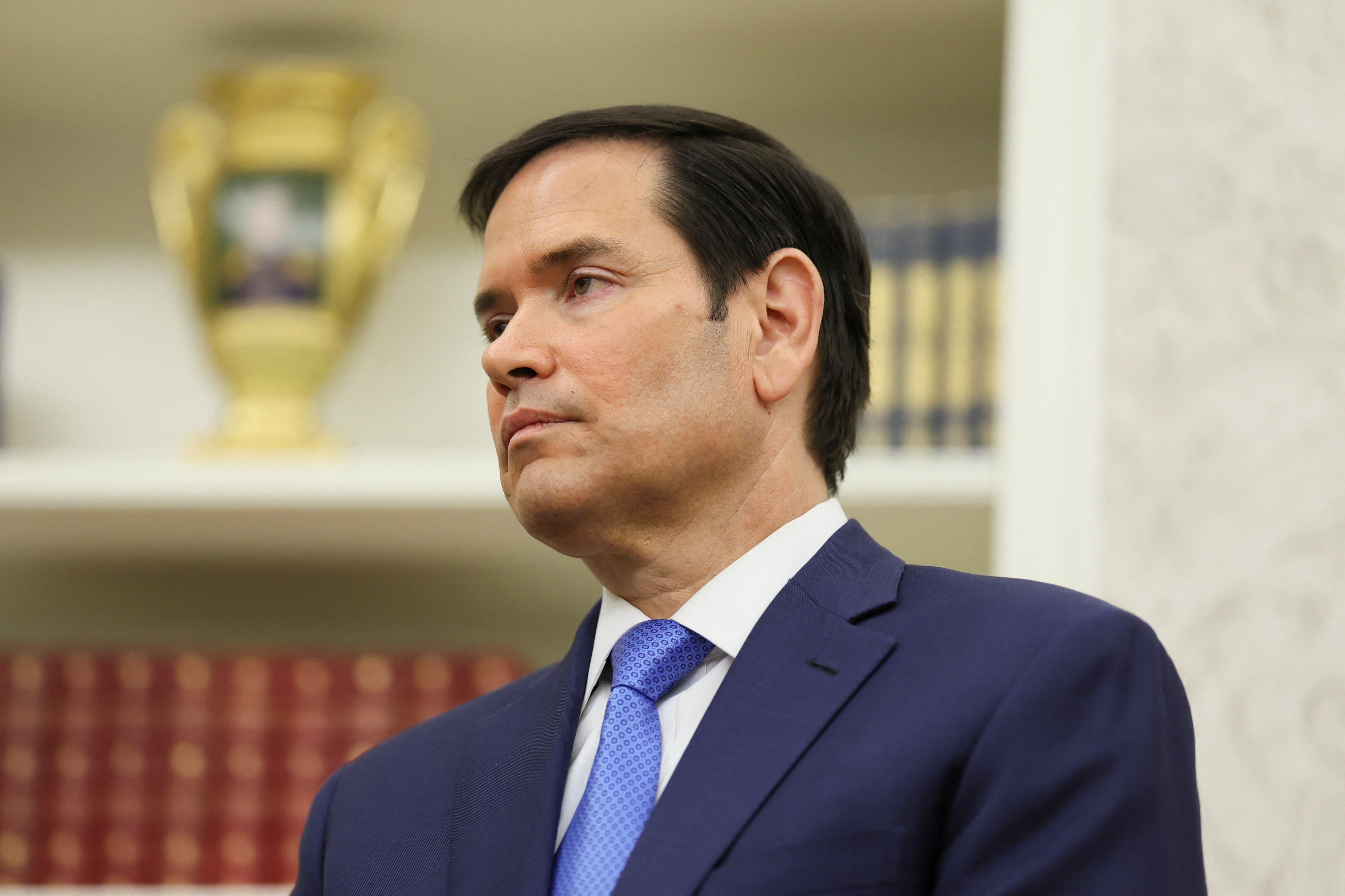
Pakistan, meanwhile, also gained strategic breathing room as it secured an IMF bailout package late Friday — despite India’s abstention — which some analysts believe provided Islamabad with an off-ramp to dial back its aggression without appearing to retreat.
From New Delhi’s standpoint, the current calm is contingent. Officials have said that “any terror attack in future will be deemed as an act of war,” signalling that the threshold for tolerating cross-border terrorism has fundamentally shifted. Diplomatic and economic retaliation remains on the table, including the ongoing suspension of the World Bank-mediated Indus Waters Treaty.
For Islamabad, General Munir was able to project to his domestic audience that Pakistan had responded robustly to Indian strikes, preserving a semblance of military parity.
India and Pakistan accuse each other of violating ceasefire hours after reaching deal
04:00 , Namita SinghIndia and Pakistan agreed to a ceasefire Saturday after US-led talks to end the most serious military confrontation between the nuclear-armed rivals in decades but accused each other of violating the deal just hours later.
The ceasefire had been expected to bring a swift end to weeks of escalating clashes, including missile and drone strikes, triggered by the mass shooting of tourists last month that India blames on Pakistan, which denies the charge.
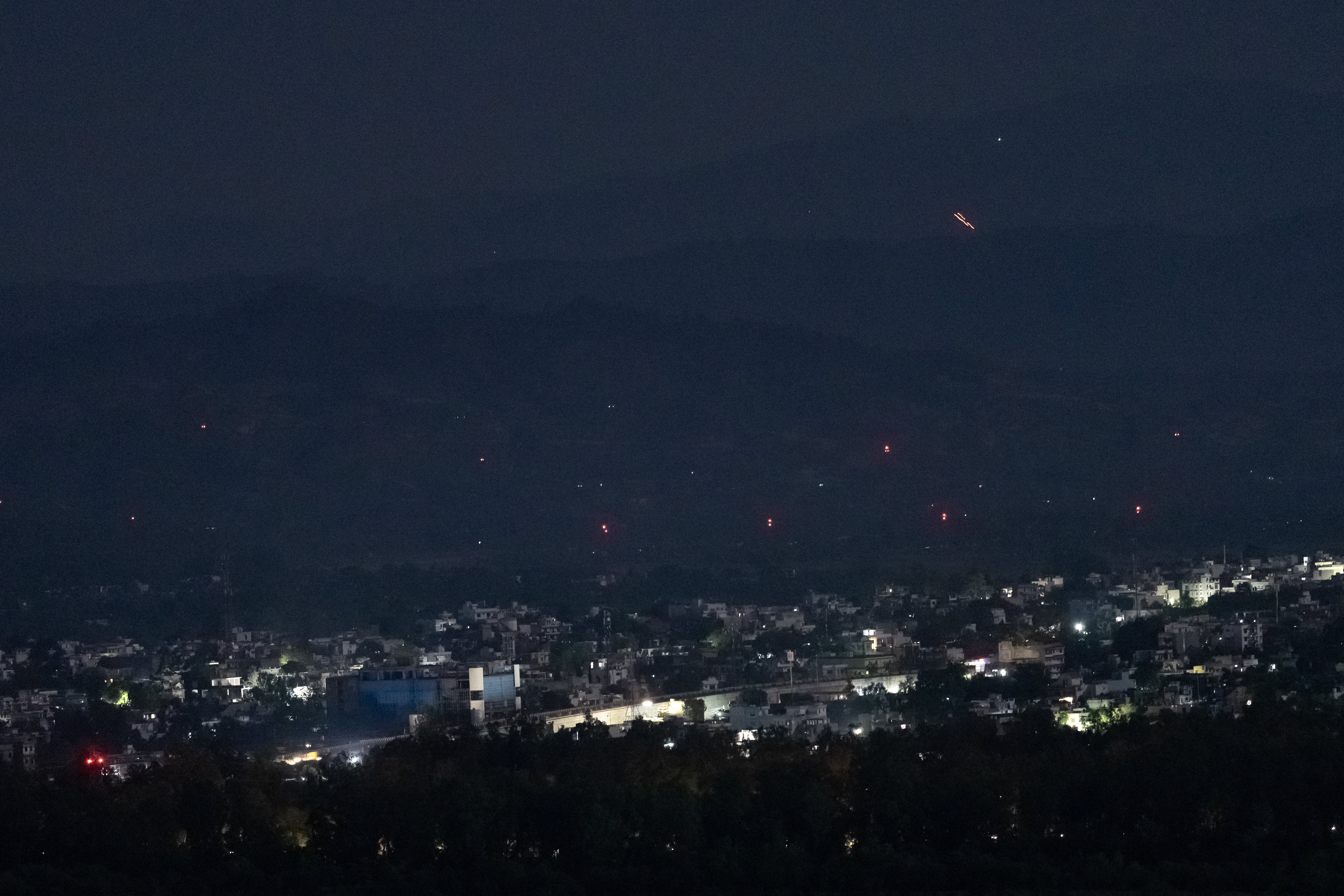
But multiple explosions were heard in two large cities of Indian-controlled Kashmir hours after the countries agreed to the deal.
Indian foreign secretary Vikram Misri said late Saturday that "there had been repeated violations of the understanding arrived between the two countries" and accused Pakistan of breaching the agreement.
"We call upon Pakistan to take appropriate steps to address these violations and deal with the situation with seriousness and responsibility," he said at a news conference in New Delhi.
Misri said the Indian army was "retaliating" for what he called a "border intrusion".
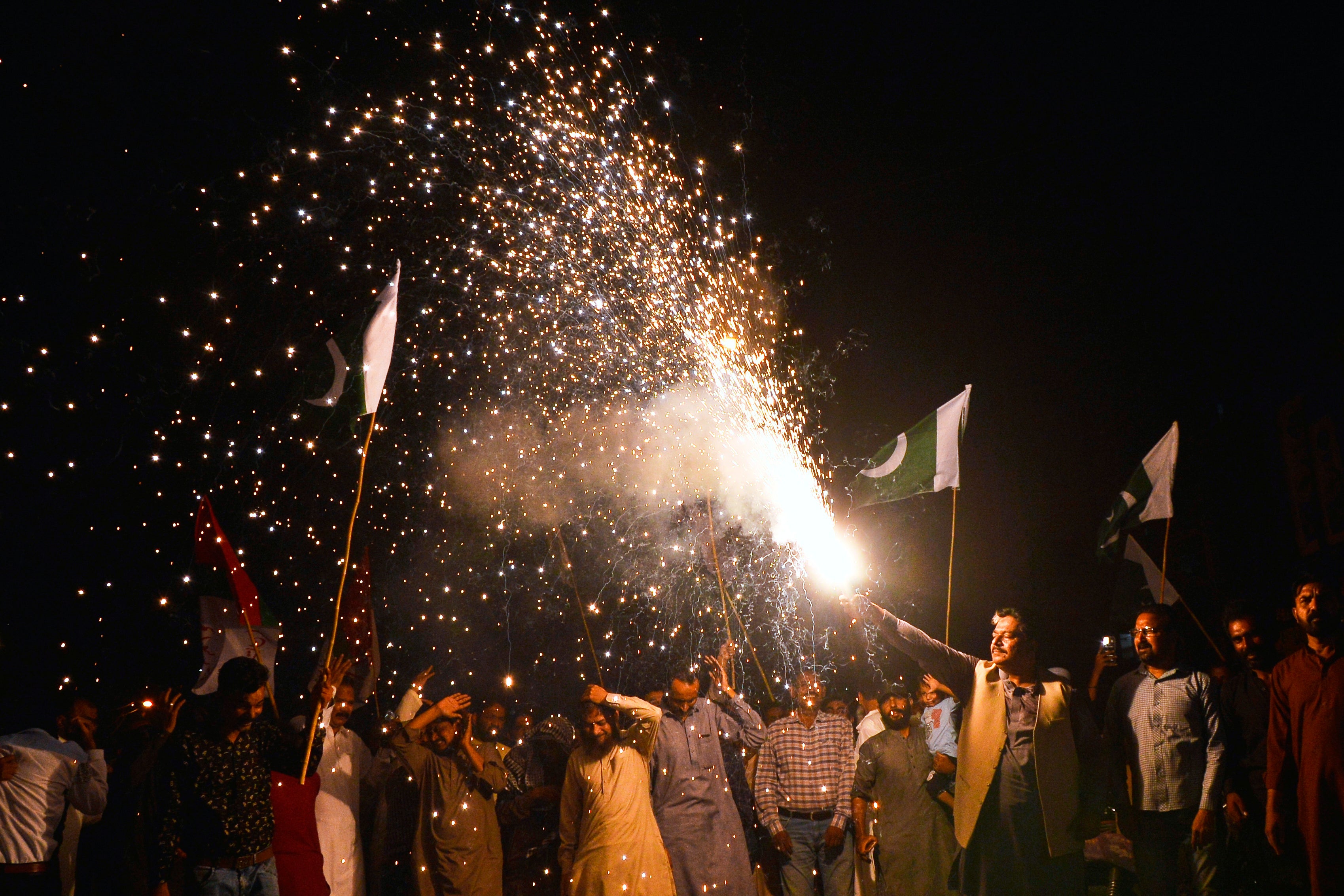
In Islamabad, Pakistan's foreign ministry blamed Indian forces for initiating the ceasefire violation.
The ministry said Pakistan remains committed to the agreement and its forces were handling the situation with responsibility and restraint.
"We believe that any issues in the smooth implementation of the ceasefire should be addressed through communication at appropriate levels," the ministry said.
India accuses Pakistan of violating ceasefire after explosions over Kashmir
03:00 , Alexander ButlerIndia has accused Pakistan of violating a ceasefire after explosions were heard over two cities in India-administered Kashmir just hours after a truce was reached between the two nuclear-armed countries.
Indian foreign secretary Vikram Misri blamed Pakistan for violating the truce after “huge” blasts were heard over Srinagar, a city to the north of Indian Kashmir, at around 9pm India time.
“For the last few hours, there have been repeated violations of the ceasefire reached earlier between India and Pakistan,” Mr Misri said. “The armed forces are giving an adequate and appropriate response to these violations.
The Independent’s producer Mohammed Dawood, who is on the ground in Srinagar, said it was “like the city was being bombed”.
Witnesses also saw projectiles over Jammu, to the south, at around 7.45pm India time, nearly three hours after the truce was agreed.
US Vice President JD Vance called Modi to encourage ceasefire talks - report
02:24 , Rhian LubinUS Vice President JD Vance was the one to call Indian Prime Minister Narendra Modi to encourage ceasefire talks over the escalating conflict with Pakistan, according to a report.
Earlier in the week, Vance said that the conflict “was none of [America’s] business.”
“What we can do is try to encourage these folks to de-escalate a little bit, but we’re not going to get involved in the middle of war that’s fundamentally none of our business and has nothing to do with America’s ability to control it,” Vance said in an interview with Fox News on Thursday.
According to CNN, the US received “alarming intelligence” about what was happening between India and Pakistan that pushed Vance, interim national security adviser Marco Rubio and White House chief of Susie Wiles into increasing U.S. involvement in peace talks.
“The vice president briefed President Donald Trump on the plan, then spoke with Modi at noon on Friday, making clear to the Indian prime minister that the White House believed there was a high probability for dramatic escalation as the conflict went into the weekend,” CNN reports.
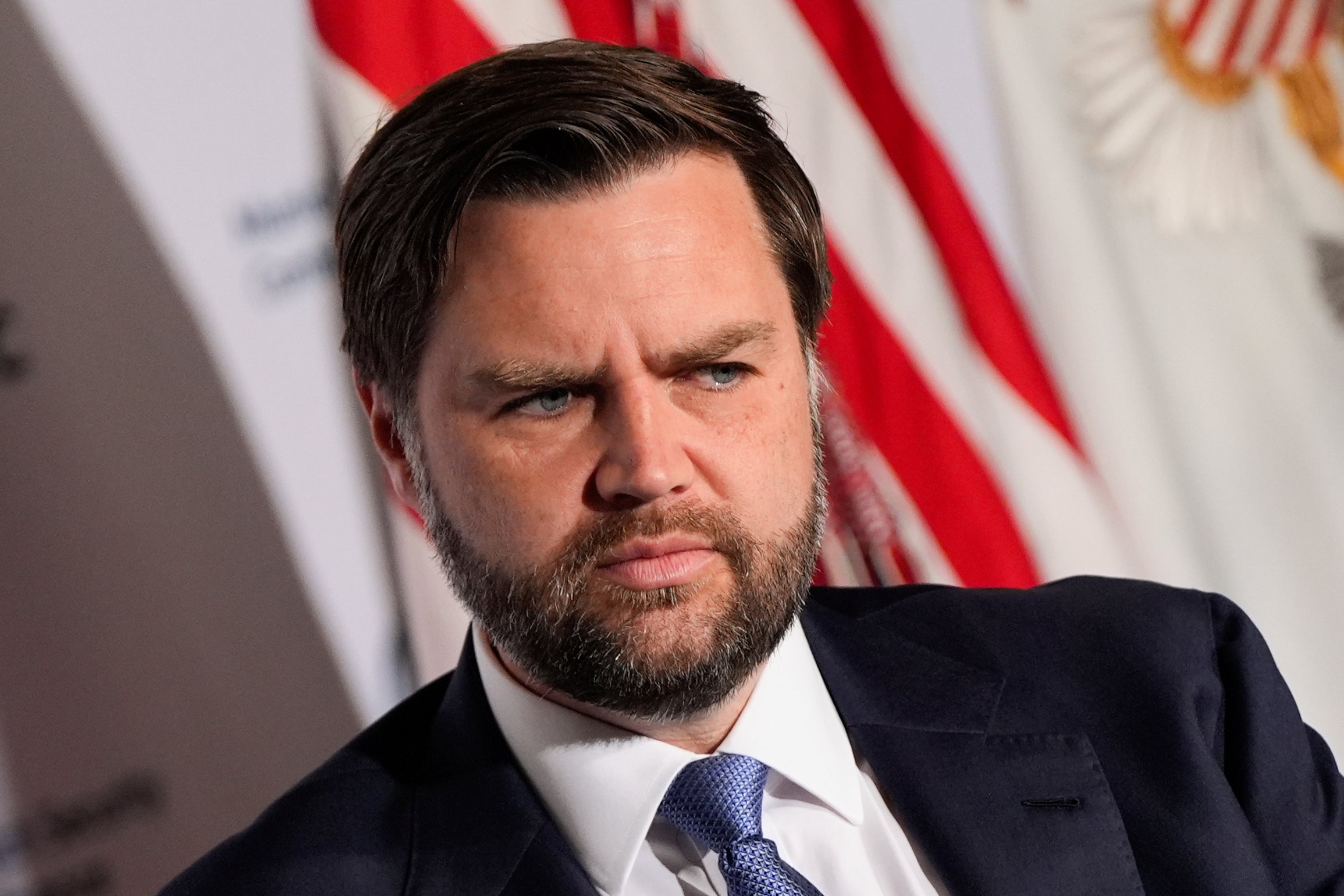
Ceasefire violations between India and Pakistan signal deeper tensions beneath the surface of diplomacy
02:00 , Namita SinghDespite a US-brokered ceasefire between India and Pakistan after four days of intense military exchanges, renewed accusations of violations hours after the announcement underscore how fragile such agreements remain in the disputed territory of Kashmir.
Indian foreign secretary Vikram Misri in a press briefing late on Saturday said that Pakistan had breached the ceasefire understanding reached earlier that day.
“There had been repeated violations,” he said, adding that the Indian Army had retaliated against what it described as a “border intrusion”.
For a conflict long characterised by periodic flare-ups and swift escalations, the latest developments in Kashmir highlight how tenuous the peace can be – even with international intervention.
Pakistan's foreign minister denies country has broken truce
01:00 , Alexander ButlerA spokesperson from Pakistan’s foreign minister has now issued a statement in response to India’s accusation it has broken ceasefire.
The country blamed India for breaking the truce, signed by both countries just hours ago.
The statement reads: “Pakistan remains committed to faithful implementation of ceasefire between Pakistan and India, announced earlier today.
"Notwithstanding the violations being committed by India in some areas, our forces are handling the situation with responsibility and restraint.
"We believe that any issues in smooth implementation of the ceasefire should be addressed through communication at appropriate levels.”
Watch: Explosions heard over Srinagar in Kashmir hours after ceasefire
Sunday 11 May 2025 00:01 , Alexander Butler'It's like we are being bombed', say witnesses
Saturday 10 May 2025 23:00 , Alexander ButlerThe Independent’s producer Mohammad Dawood, who is in Srinagar, has said it is like the city is “being bombed”.
He first heard explosions at around 9pm Indian time and said they have not stopped since. Footage showed projectiles flying across the night sky.
Chief minister of Jammu & Kashmir Omar Abdullah said on X: “What the hell just happened to the ceasefire? Explosions heard across Srinagar!!!”
How do India and Pakistan’s armies and nuclear arsenals compare to each other?
Saturday 10 May 2025 23:00 , Alexander ButlerThe dramatic flare-up of tensions and targeted cross-border strikes between India and Pakistan this week has raised the spectre of a first all-out war between the two nuclear-armed neighbours in decades.
The two countries have fought two wars since independence over the disputed region of Kashmir – and three in total – and the picturesque Himalayan valley is once again at the centre of their standoff. Already arguably the most highly militarised region in the world, with hundreds of thousands of troops and paramilitary forces deployed to maintain security in Indian-administered Kashmir at the best of times.
But taken together, the Indian and Pakistani militaries boast a total of around 2 million armed forces personnel. It means an all-out conflict would be one of the largest by number of combatants since the end of the Second World War.
The Independent’s Arpan Rai takes a closer look here:
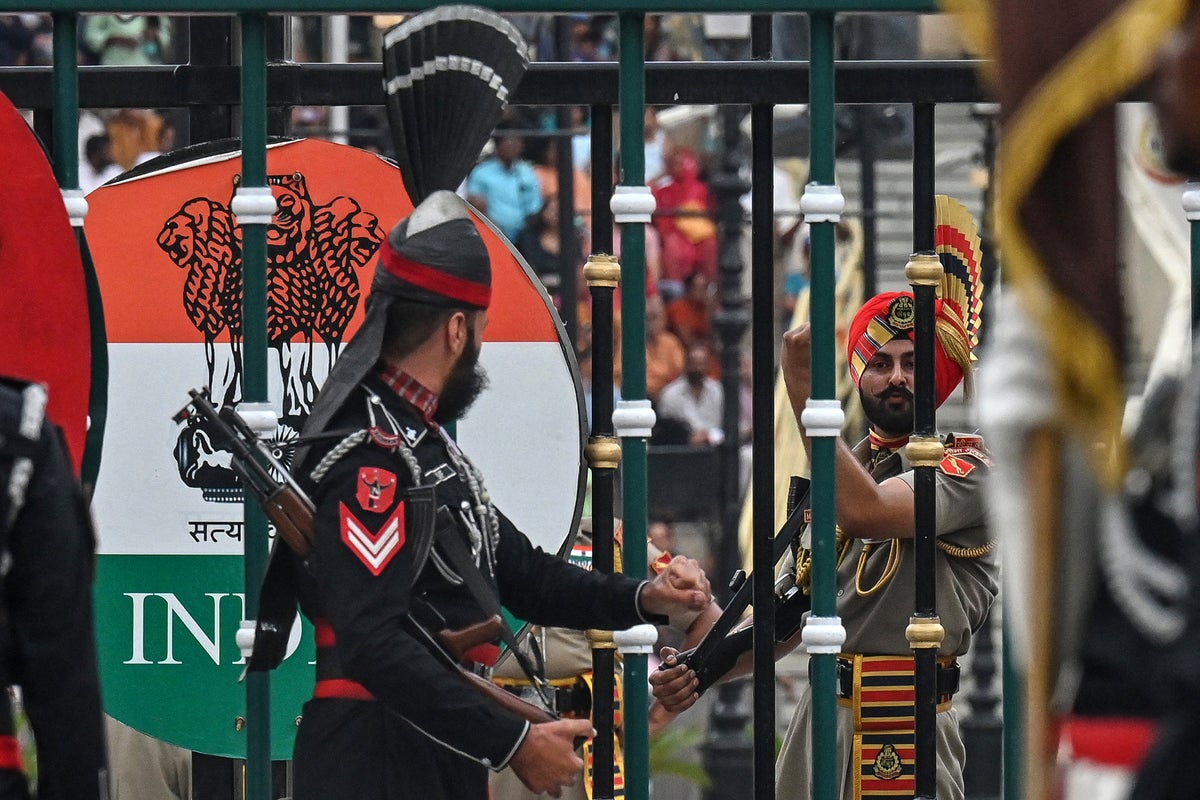
How do India and Pakistan’s armies and nuclear arsenals compare to each other?
Recap: Nuclear neighbours India and Pakistan step closer to war
Saturday 10 May 2025 22:30 , Alexander ButlerA terror attack in Kashmir on 22 April has pushed India and Pakistan a step closer to war, marking the biggest breakdown in relations since 2019.
- 22 April: Gunmen shoot and kill 26 tourists at the tourist town of Pahalgam in Indian-administered Kashmir, a major shift in a regional conflict that has largely spared civilians. The unidentified gunmen also wound 17 people. A group called Kashmir Resistance, which India accuses Pakistan of backing, claims the attack.
- 23 April: India downgrades diplomatic ties, closes the only functional land border crossing, and suspends a crucial water-sharing treaty that has survived two wars and a major border skirmish between the two countries.
- India launches a manhunt for the Pahalgam assailants. Pakistan denies involvement in the attack.
- 24 April: India and Pakistan cancel visas for each other's nationals, setting a deadline for them to leave. In retaliation, Pakistan shuts its airspace for all Indian-owned or Indian-operated airlines, and suspends all trade with India, including to and from any third country. Government ministers on both sides hint the dispute could escalate to military action.
- 25 April: India says its troops exchanged fire with Pakistani soldiers at the Line of Control, the de facto border dividing the disputed Kashmir region. Pakistan warns it could suspend an agreement that established the Line of Control, in what would be a major and worrying step.
- 26 April: Pakistani prime minister Shehbaz Sharif vows his government will respond "with full force and might" to Indian attempts to stop or divert the flow of water.
- 30 April: Pakistan's information minister Attaullah Tarar says his government has "credible intelligence" that India intends to carry out military action against Pakistan in the next 24 to 36 hours.
- 3 May: Pakistan test-fires a ballistic missile with a range of 450km.
- 7 May: India fires missiles on Pakistan, which calls the strikes an "act of war" and vows to avenge those who died in the pre-dawn attack. The missiles kill 31 people, including women and children, in Pakistan-administered Kashmir and the country's Punjab province. The strikes target at least nine sites "where terrorist attacks against India have been planned", says India's defense ministry. Pakistan claims it downed several Indian fighter jets.
- 8 May: India fires attack drones into Pakistan, killing at least two civilians, the Pakistani military says. India, meanwhile, accuses its neighbour of attempting its own attack and acknowledges targeting its arch rival's air defence system.
- India evacuates thousands of people from villages near the highly militarised frontier in the Kashmir region. Flights remain suspended at over two dozen airports across northern and western regions of India.
- 9 May: India suspends its biggest domestic cricket tournament for a week following the escalating military tensions with Pakistan. Pakistan initially says it will move its own domestic T20 tournament to the United Arab Emirates because of the crisis, but then says it will only postpone matches. India's army says drones have been sighted in 26 locations across many areas in Indian states bordering Pakistan and Indian-controlled Kashmir, including the main city of Srinagar. The drones were tracked and engaged, it adds.
- 10 May. 5pm Indian time: US president Donald Trump announced a “full and immediate ceasefire” between India and Pakistan.
- 10 May, 7.45pm Indian time: Residents in Indian-controlled Kashmir report hearing loud explosions at multiple places in the region, including Srinagar, Jammu, and the garrison town of Udhampur.
- 10 May, 11pm Indian time: Indian accuses Pakistan of violating the ceasefire and warns that the military will respond “appropriately”.
Pictured: Pakistanis celebrate ceasefire before breakdown
Saturday 10 May 2025 21:57 , Alexander Butler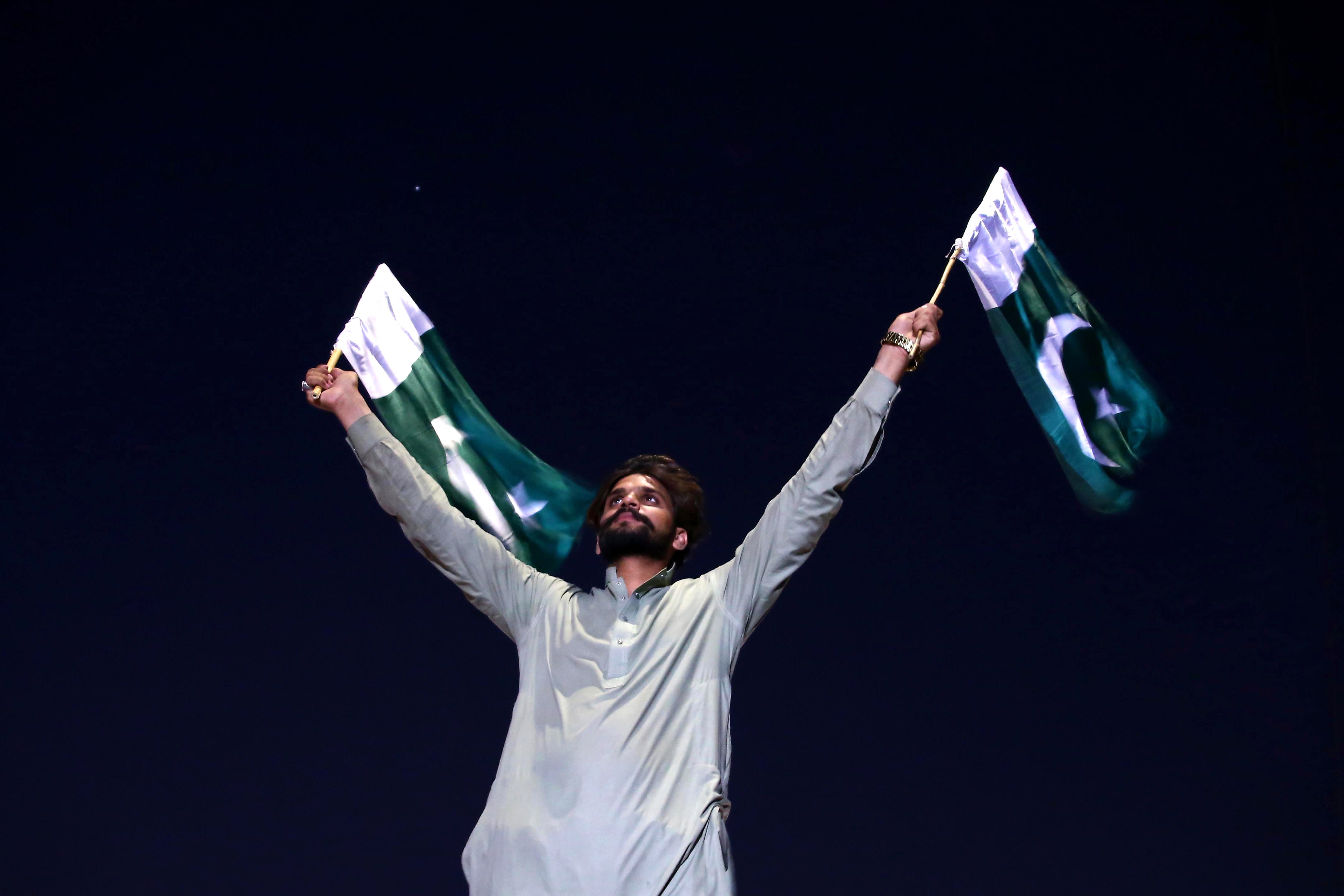
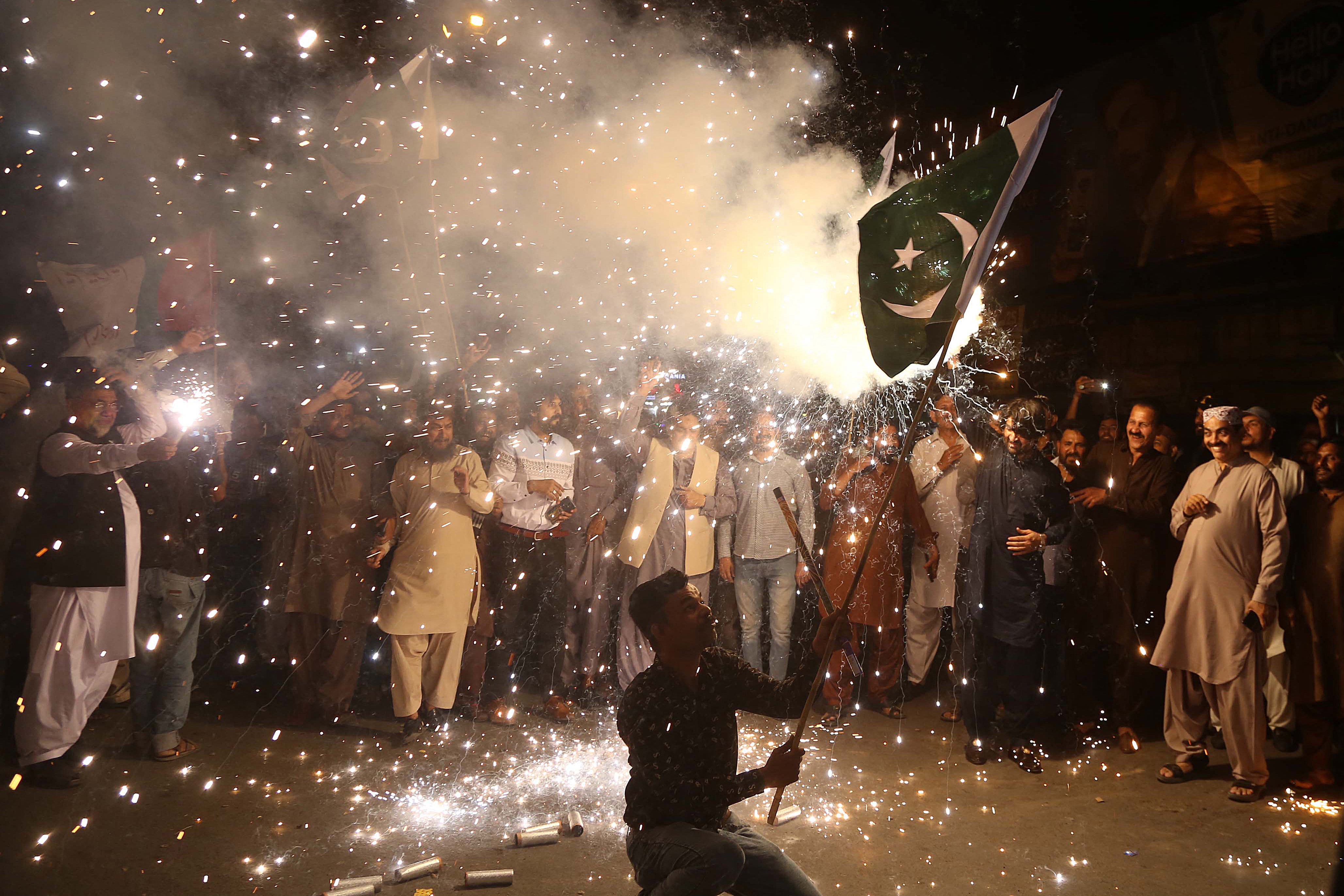
Watch: Explosions heard over Srinagar in Kashmir hours after ceasefire
Saturday 10 May 2025 21:37 , Alexander ButlerPakistan's foreign minister denies country has broken truce
Saturday 10 May 2025 20:52A spokesperson from Pakistan’s foreign minister has now issued a statement in response to India’s accusation it has broken ceasefire.
The country blaming India for breaking the truce, signed by both countries just hours ago.
The statement reads: “Pakistan remains committed to faithful implementation of ceasefire between Pakistan and India, announced earlier today.
"Notwithstanding the violations being committed by India in some areas, our forces are handling the situation with responsibility and restraint.
"We believe that any issues in smooth implementation of the ceasefire should be addressed through communication at appropriate levels.”

Pakistan's PM Shehbaz Sharif did not address India's accusations
Saturday 10 May 2025 20:44Mr Sharif spoke about the ceasefire deal, but did not respond to accusations from India’s foreign secretary, Vikram Misri, that Pakistan broke the cease-fire soon after it was announced.
He did say: “We are a very responsible country and we have displayed this. We want peace. We have made this agreement of ceasefire and we have been very positive about it.”
Pakistan's PM Shehbaz Sharif says ceasefire response is in the interest of peace
Saturday 10 May 2025 20:40 , Alex RossAs India accuses Pakistan of breaching the ceasefire agreed between the two countries, Pakistan’s prime minister Shehbaz Sharif has said his country has responded positively to the deal.
In a televised speech, he said he hoped all the outstanding issues with India, including the Kashmir dispute, would be resolved through peaceful dialogue.
Sharif thanked US President Donald Trump, China, and other friendly countries like Qatar, UAE, Saudi Arabia, and Turkey for their role in defusing tensions.
He praised the armed forces, saying Pakistan's military made a fitting response when India launched missile attacks overnight. "Our pilots silenced the Indian military's guns within hours," Sharif said.

Pakistan denies ceasefire violation allegations
Saturday 10 May 2025 19:39 , Namita SinghThe apparent return to hostilities began shortly after the deal was struck, with fresh exchanges of fire reported along the Line of Control (LoC), and explosions heard in major cities such as Srinagar and Jammu.
Eyewitnesses in Indian-administer Kashmir reported blackouts and anti-aircraft activity, while visuals captured red projectiles streaking across the night sky.
Meanwhile, Pakistan has denied any ceasefire violations. Speaking to local media, the country’s Information Minister insisted that there had been no breach from their side.
Several social media users in India expressed their disappointment over the alleged violations. Chief minister of Jammu & Kashmir, expressed his exasperation over the late night attacks.
He shared a video of projectiles in Srinagar on X, and he wrote: “This is no ceasefire. The air defence units in the middle of Srinagar just opened up.”
Ceasefire violations between India and Pakistan signal deeper tensions beneath the surface of diplomacy
Saturday 10 May 2025 19:38 , Namita SinghDespite a US-brokered ceasefire between India and Pakistan after four days of intense military exchanges, renewed accusations of violations hours after the announcement underscore how fragile such agreements remain in the disputed territory of Kashmir.
Indian foreign secretary Vikram Misri in a press briefing late on Saturday said that Pakistan had breached the ceasefire understanding reached earlier that day.
“There had been repeated violations,” he said, adding that the Indian Army had retaliated against what it described as a “border intrusion”.
For a conflict long characterised by periodic flare-ups and swift escalations, the latest developments in Kashmir highlight how tenuous the peace can be – even with international intervention.
Recap: Nuclear neighbours India and Pakistan step closer to war
Saturday 10 May 2025 19:07 , Alexander ButlerA terror attack in Kashmir on 22 April has pushed India and Pakistan a step closer to war, marking the biggest breakdown in relations since 2019.
- 22 April: Gunmen shoot and kill 26 tourists at the tourist town of Pahalgam in Indian-administered Kashmir, a major shift in a regional conflict that has largely spared civilians. The unidentified gunmen also wound 17 people. A group called Kashmir Resistance, which India accuses Pakistan of backing, claims the attack.
- 23 April: India downgrades diplomatic ties, closes the only functional land border crossing, and suspends a crucial water-sharing treaty that has survived two wars and a major border skirmish between the two countries.
- India launches a manhunt for the Pahalgam assailants. Pakistan denies involvement in the attack.
- 24 April: India and Pakistan cancel visas for each other's nationals, setting a deadline for them to leave. In retaliation, Pakistan shuts its airspace for all Indian-owned or Indian-operated airlines, and suspends all trade with India, including to and from any third country. Government ministers on both sides hint the dispute could escalate to military action.
- 25 April: India says its troops exchanged fire with Pakistani soldiers at the Line of Control, the de facto border dividing the disputed Kashmir region. Pakistan warns it could suspend an agreement that established the Line of Control, in what would be a major and worrying step.
- 26 April: Pakistani prime minister Shehbaz Sharif vows his government will respond "with full force and might" to Indian attempts to stop or divert the flow of water.
- 30 April: Pakistan's information minister Attaullah Tarar says his government has "credible intelligence" that India intends to carry out military action against Pakistan in the next 24 to 36 hours.
- 3 May: Pakistan test-fires a ballistic missile with a range of 450km.
- 7 May: India fires missiles on Pakistan, which calls the strikes an "act of war" and vows to avenge those who died in the pre-dawn attack. The missiles kill 31 people, including women and children, in Pakistan-administered Kashmir and the country's Punjab province. The strikes target at least nine sites "where terrorist attacks against India have been planned", says India's defense ministry. Pakistan claims it downed several Indian fighter jets.
- 8 May: India fires attack drones into Pakistan, killing at least two civilians, the Pakistani military says. India, meanwhile, accuses its neighbour of attempting its own attack and acknowledges targeting its arch rival's air defence system.
- India evacuates thousands of people from villages near the highly militarised frontier in the Kashmir region. Flights remain suspended at over two dozen airports across northern and western regions of India.
- 9 May: India suspends its biggest domestic cricket tournament for a week following the escalating military tensions with Pakistan. Pakistan initially says it will move its own domestic T20 tournament to the United Arab Emirates because of the crisis, but then says it will only postpone matches. India's army says drones have been sighted in 26 locations across many areas in Indian states bordering Pakistan and Indian-controlled Kashmir, including the main city of Srinagar. The drones were tracked and engaged, it adds.
- 10 May. 5pm Indian time: US president Donald Trump announced a “full and immediate ceasefire” between India and Pakistan.
- 10 May, 7.45pm Indian time: Residents in Indian-controlled Kashmir report hearing loud explosions at multiple places in the region, including Srinagar, Jammu, and the garrison town of Udhampur.
- 10 May, 11pm Indian time: Indian accuses Pakistan of violating the ceasefire and warns that the military will respond “appropriately”.
India accuses Pakistan of violating ceasefire after explosions over Kashmir
Saturday 10 May 2025 18:40 , Alexander ButlerIndia has accused Pakistan of violating a ceasefire after explosions were heard over two cities in India-administered Kashmir just hours after a truce was reached between the two nuclear-armed countries.
Indian foreign secretary Vikram Misri blamed Pakistan for violating the truce after “huge” blasts were heard over Srinagar, a city to the north of Indian Kashmir, at around 9pm India time.
“For the last few hours, there have been repeated violations of the ceasefire reached earlier between India and Pakistan,” Mr Misri said. “The armed forces are giving an adequate and appropriate response to these violations.
The Independent’s producer Mohammed Dawood, who is on the ground in Srinagar, said it was “like the city was being bombed”.
Witnesses also saw projectiles over Jammu, to the south, at around 7.45pm India time, nearly three hours after the truce was agreed.
'It's like we are being bombed', say witnesses
Saturday 10 May 2025 18:06 , Alexander ButlerThe Independent’s producer Mohammad Dawood, who is in Srinagar, has said it is like the city is “being bombed”.
He first heard explosions at around 9pm Indian time and said they have not stopped since. Footage showed projectiles flying across the night sky.
Chief minister of Jammu & Kashmir Omar Abdullah said on X: “What the hell just happened to the ceasefire? Explosions heard across Srinagar!!!”

How do India and Pakistan’s armies and nuclear arsenals compare to each other?
Saturday 10 May 2025 17:53 , Alexander ButlerThe dramatic flare-up of tensions and targeted cross-border strikes between India and Pakistan this week has raised the spectre of a first all-out war between the two nuclear-armed neighbours in decades.
The two countries have fought two wars since independence over the disputed region of Kashmir – and three in total – and the picturesque Himalayan valley is once again at the centre of their standoff. Already arguably the most highly militarised region in the world, with hundreds of thousands of troops and paramilitary forces deployed to maintain security in Indian-administered Kashmir at the best of times.
But taken together, the Indian and Pakistani militaries boast a total of around 2 million armed forces personnel. It means an all-out conflict would be one of the largest by number of combatants since the end of the Second World War.
The Independent’s Arpan Rai takes a closer look here:

How do India and Pakistan’s armies and nuclear arsenals compare to each other?
Watch: Explosions heard over Srinagar in Kashmir hours after ceasefire
Saturday 10 May 2025 17:14 , Alexander Butler'It's like we are being bombed', say witnesses
Saturday 10 May 2025 17:02 , Alexander ButlerThe Independent’s producer Mohammad Dawood, who is in Srinagar, has said it is like the city is “being bombed”.
He first heard explosions at around 9pm Indian time and said they have not stopped since. Footage showed projectiles flying across the night sky.
Chief minister of Jammu & Kashmir Omar Abdullah said on X: “What the hell just happened to the ceasefire? Explosions heard across Srinagar!!!”
Explosions heard over Kashmiri cities, say witnesses
Saturday 10 May 2025 16:25 , Alexander ButlerExplosions were heard over Jammu and Srinagar in India-administered Kashmir just hours after a ceasefire between India and Pakistan was reached.
Witnesses saw projectiles over Jammu at around 7.45pm India time, nearly three hours after the truce was agreed, according to Reuters.
Chief minister of Jammu & Kashmir Omar Abdullah added: “What the hell just happened to the ceasefire? Explosions heard across Srinagar!!!”
It is unclear who was responsible for the explosions.
Watch: Trump announces India and Pakistan have agreed to a 'full and immediate' ceasefire
Saturday 10 May 2025 16:12 , Alexander ButlerUS officials conducted 'shuttle diplomacy' between India and Pakistan, reports say
Saturday 10 May 2025 15:49 , Holly BancroftUS secretary of state Marco Rubio spent the night working the phones and conducting “shuttle diplomacy” between Indian and Pakistani officials, according to the New York Times.
Vice president JD Vance also reportedly spoke with India’s prime minister Narendra Modi.
Announcing the truce on social media, president Donald Trump said that talks between the two countries had been mediated by the US.
UK foreign secretary urges India and Pakistan to sustain ceasefire
Saturday 10 May 2025 15:41 , Holly BancroftForeign Secretary David Lammy has described the ceasefire between India and Pakistan as "hugely welcome", in a post on social media adding: "I urge both parties to sustain this. De-escalation is in everybody's interest."
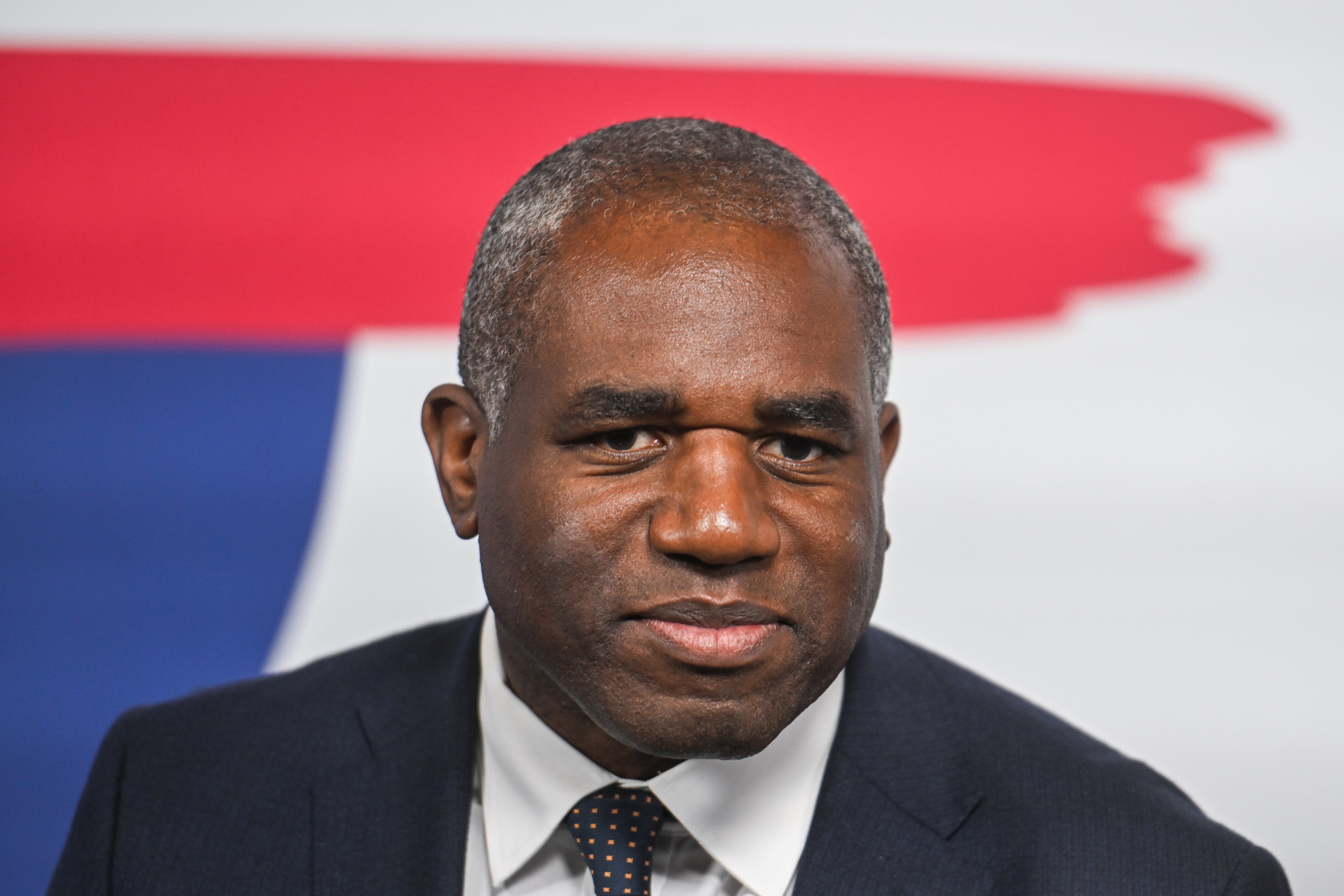
Indian military says it remains vigilant
Saturday 10 May 2025 15:30 , Holly BancroftIndian armed forces remain “vigilant” and are ready to defend their sovereignty, defence officials say after ceasefire announcement.
Raghu R. Nair, an Indian navy commodore, told a news conference on Saturday that the Indian armed forces will adhere to the understanding reached on the ceasefire, but they "remain fully prepared, ever vigilant and committed to defending the sovereignty and integrity of the motherland."
"Every misadventure by Pakistan has been met with strength. And every future escalation will invite a decisive response. We remain fully operationally ready to launch whatever operations may be required in defence of the nation," said Mr Nair.
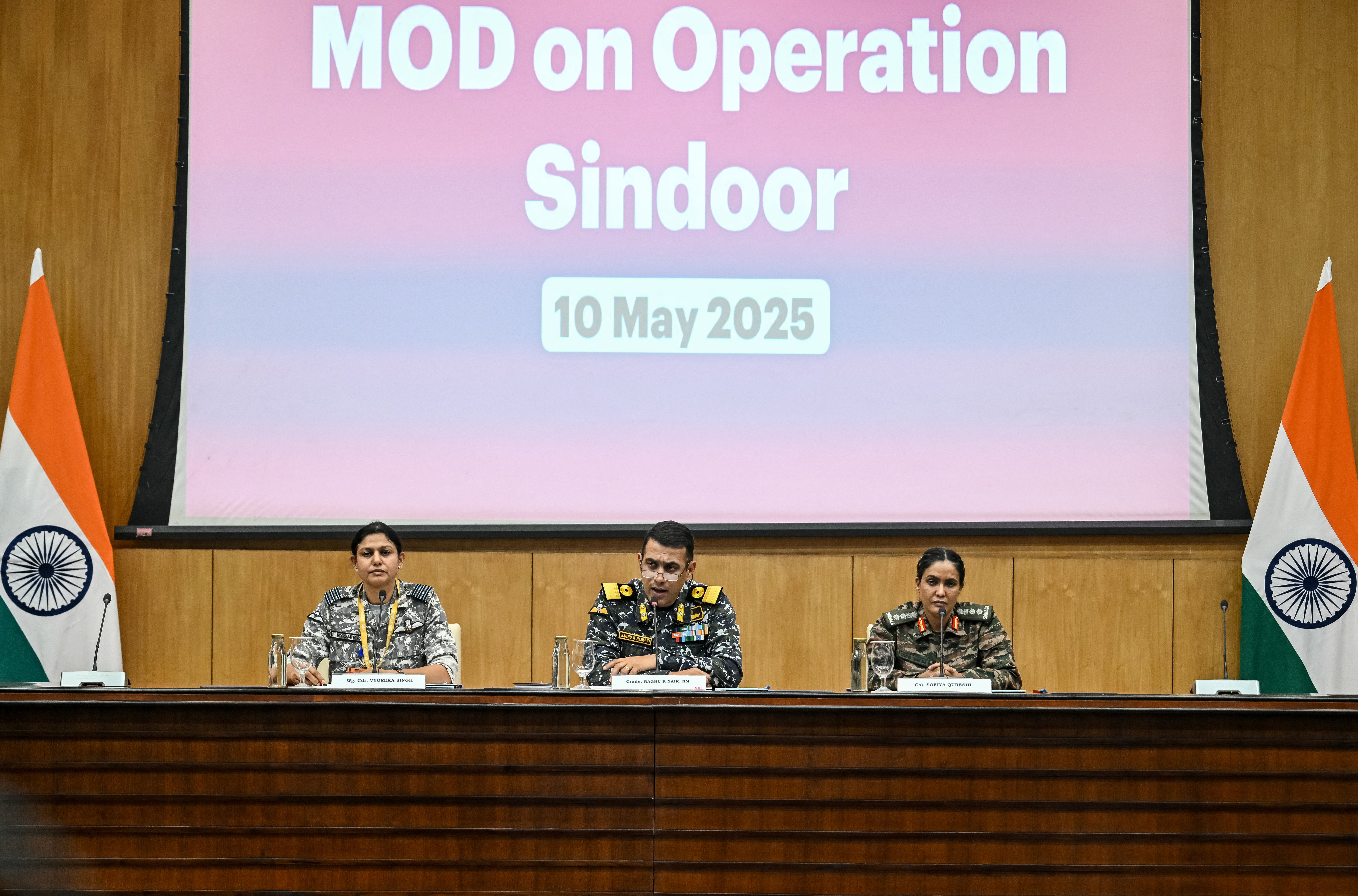
India and Pakistan 'worked directly on truce', source says
Saturday 10 May 2025 15:11 , Holly BancroftIndia and Pakistan worked directly on the ceasefire agreement, a source on the Indian side has told CNN. The news comes after US president Donald Trump said that the truce was the result of a night of US mediation.
The source said: “The stoppage of firing and military action between India and Pakistan was worked out directly between the two countries”
Announcing the decision, the external affairs minister of India said that “India and Pakistan have today worked out an understanding on stoppage of firing and military action”.
In pictures: People celebrate ceasefire
Saturday 10 May 2025 15:01 , Holly Bancroft